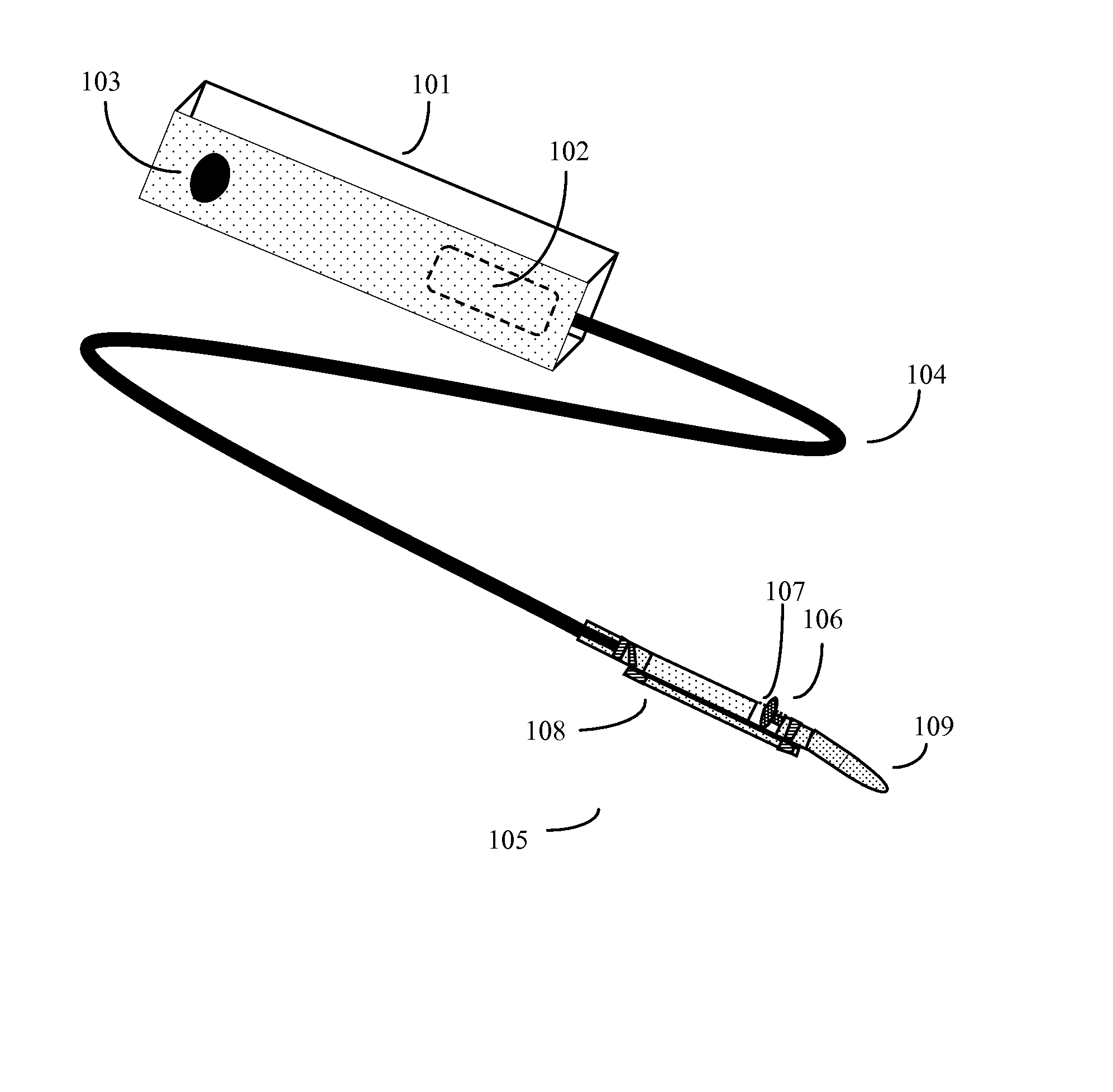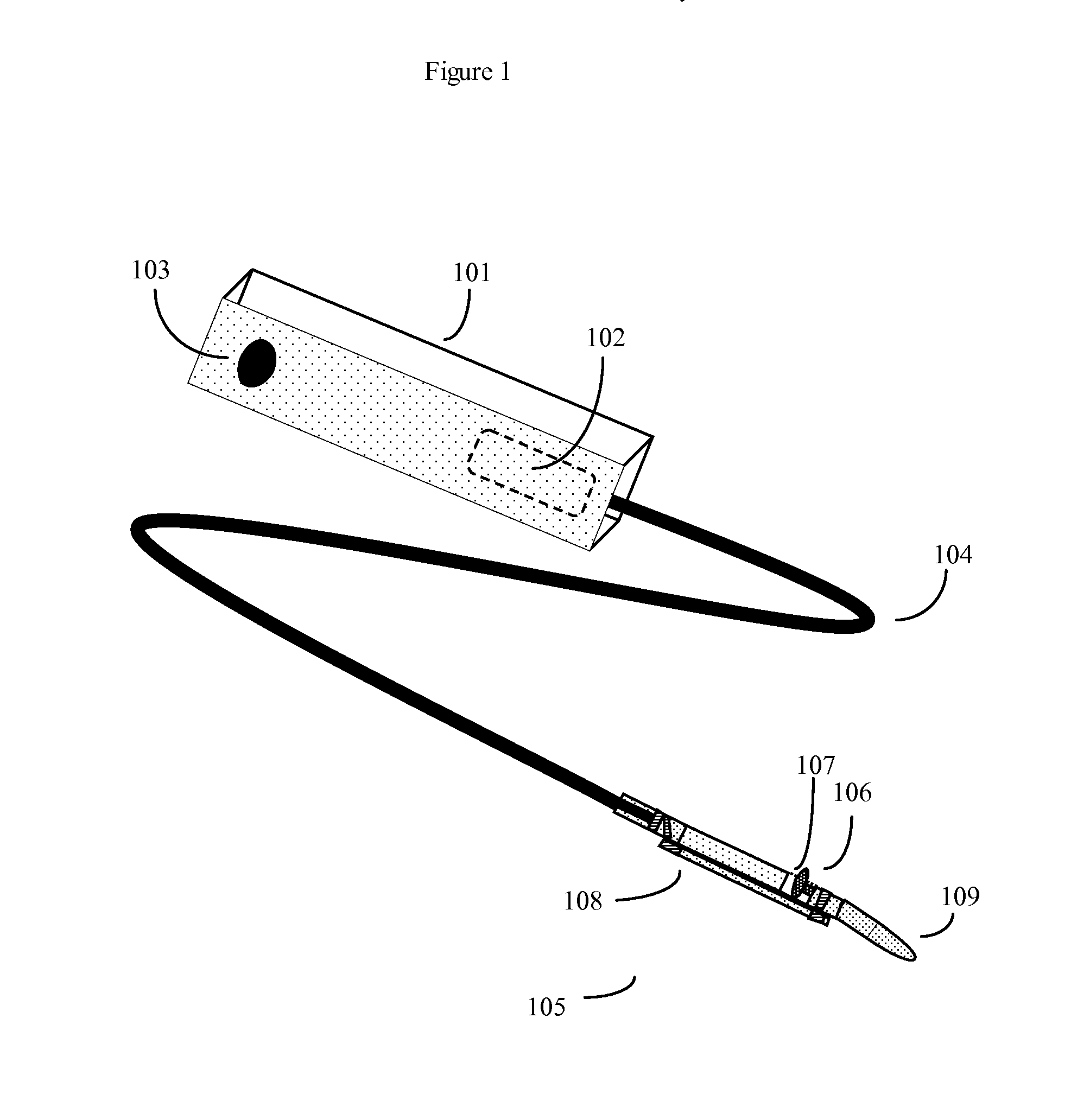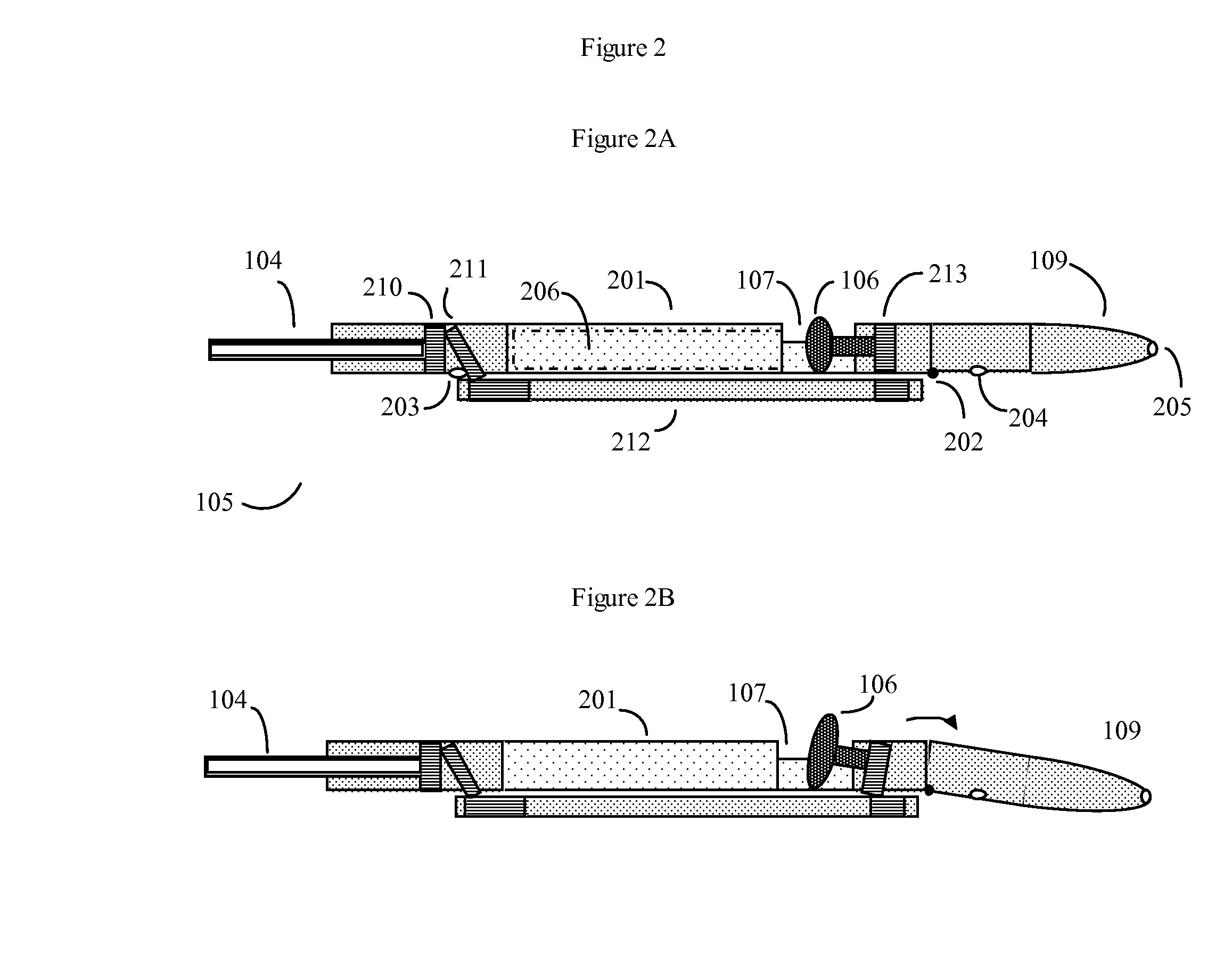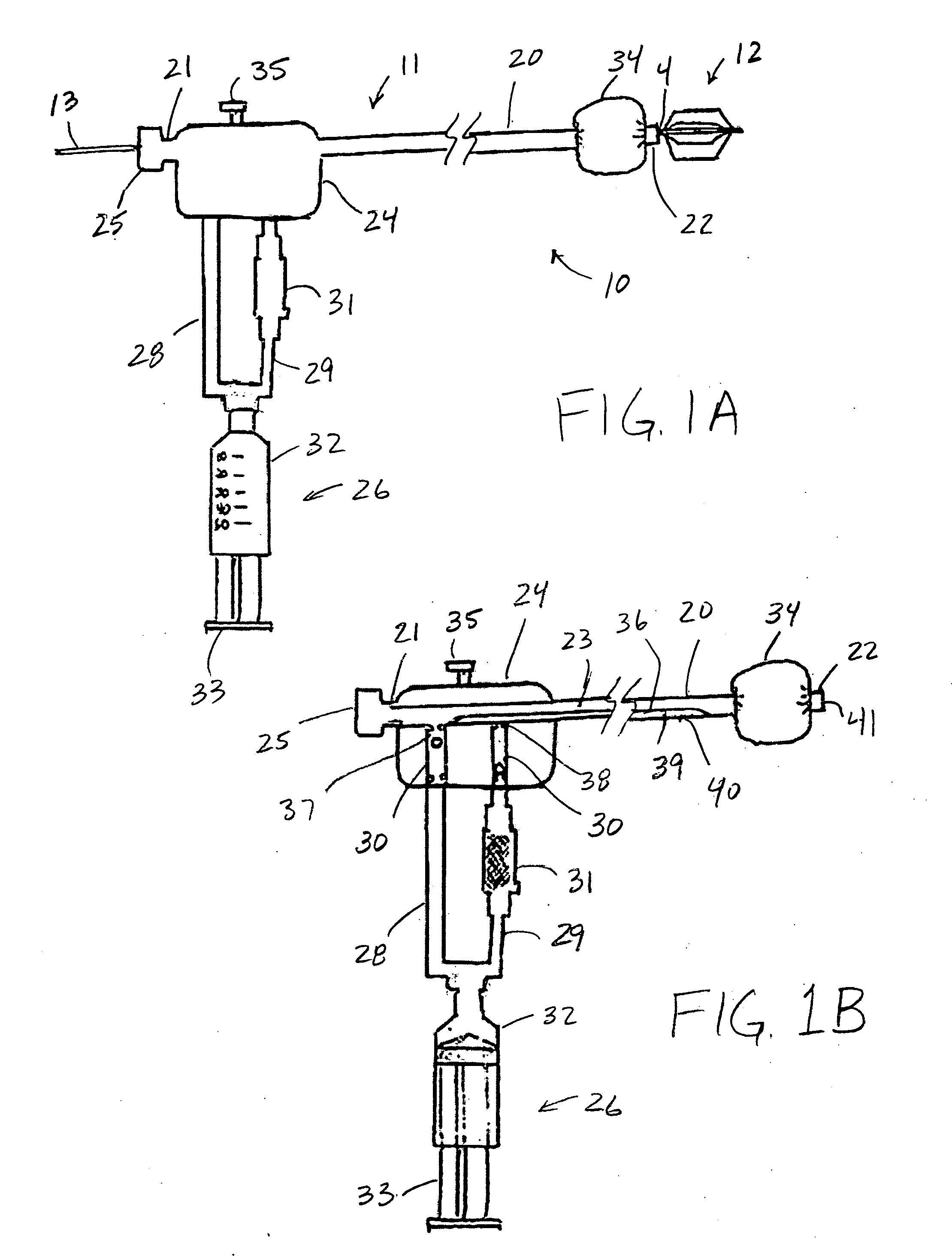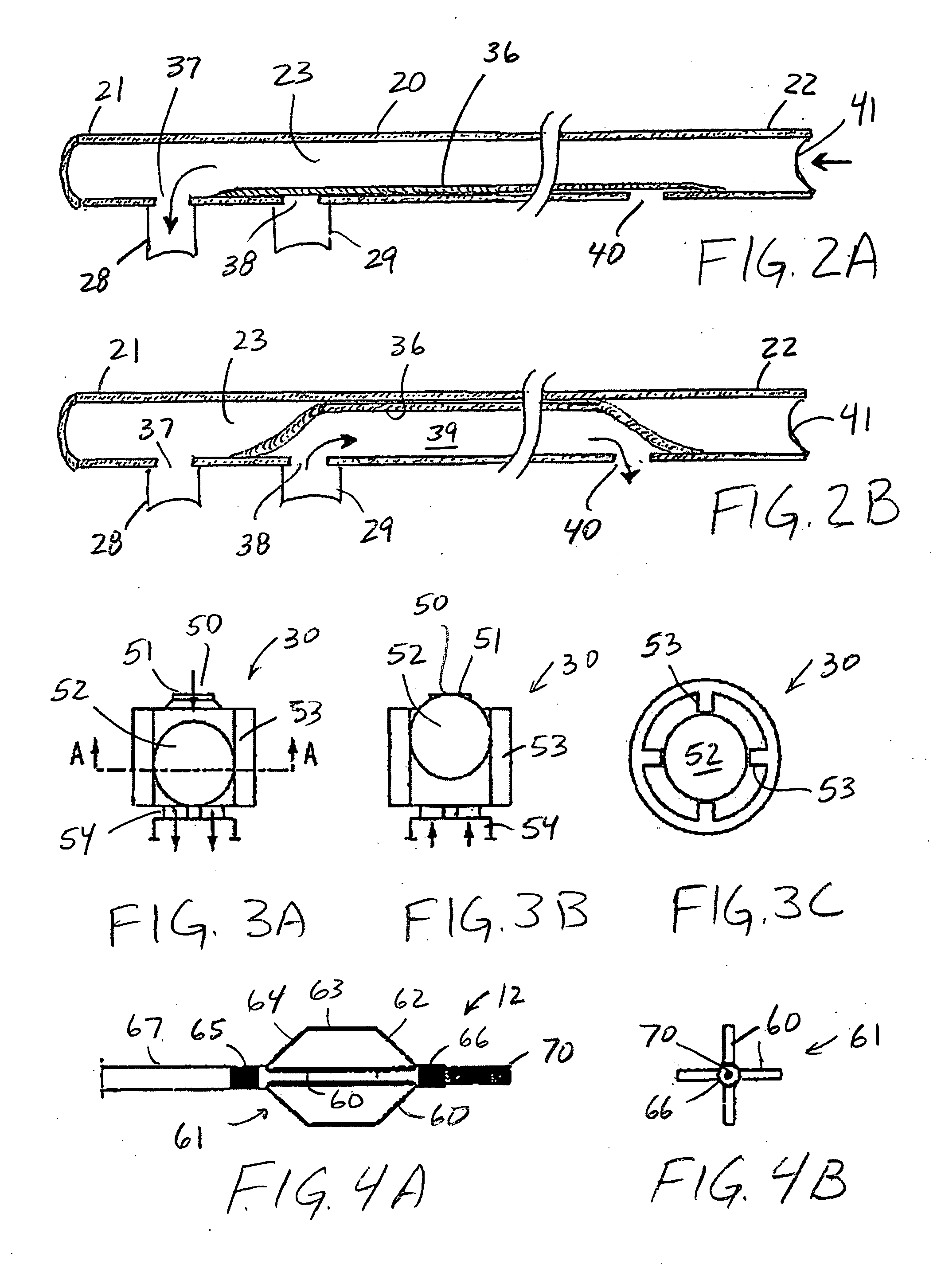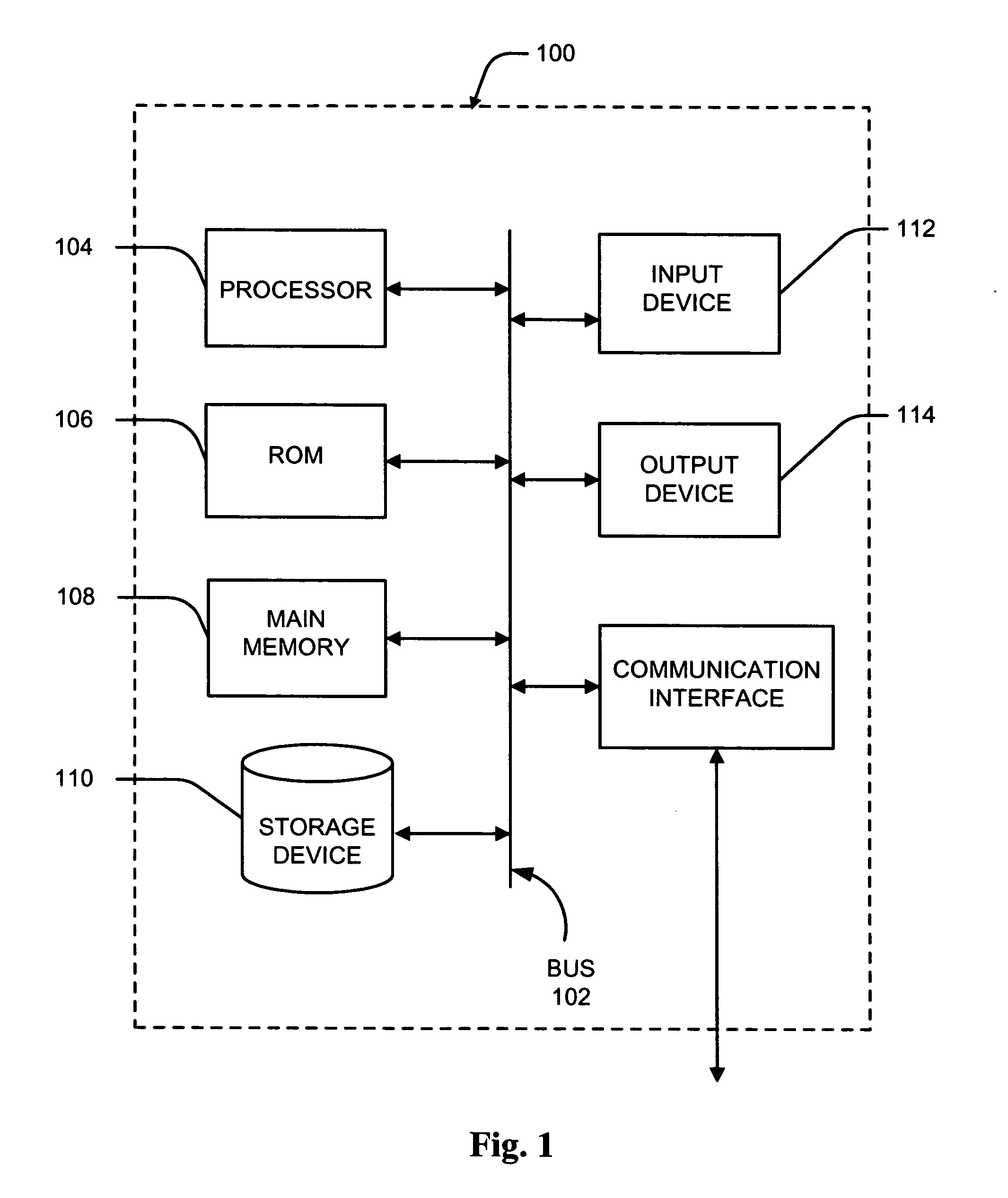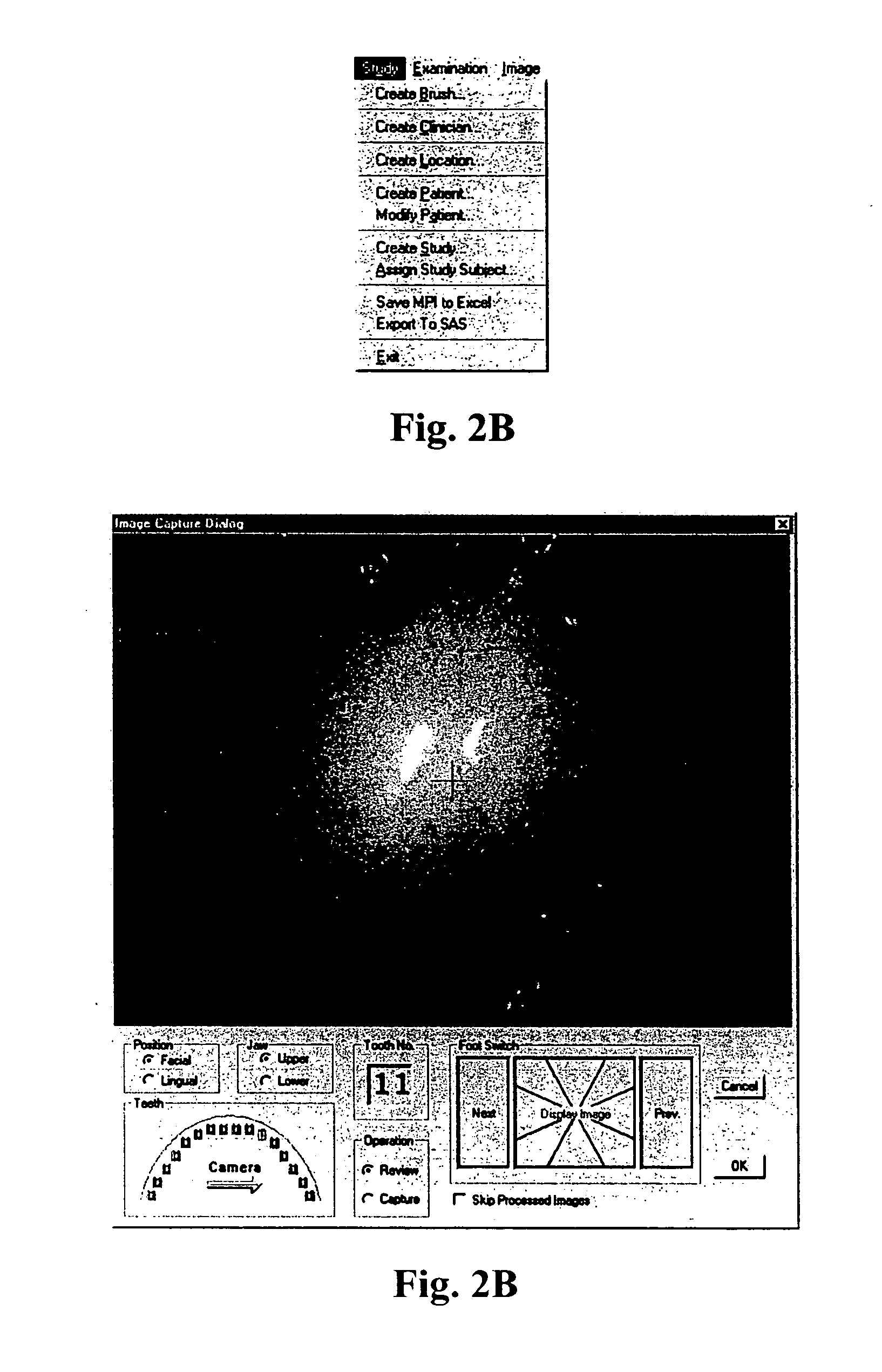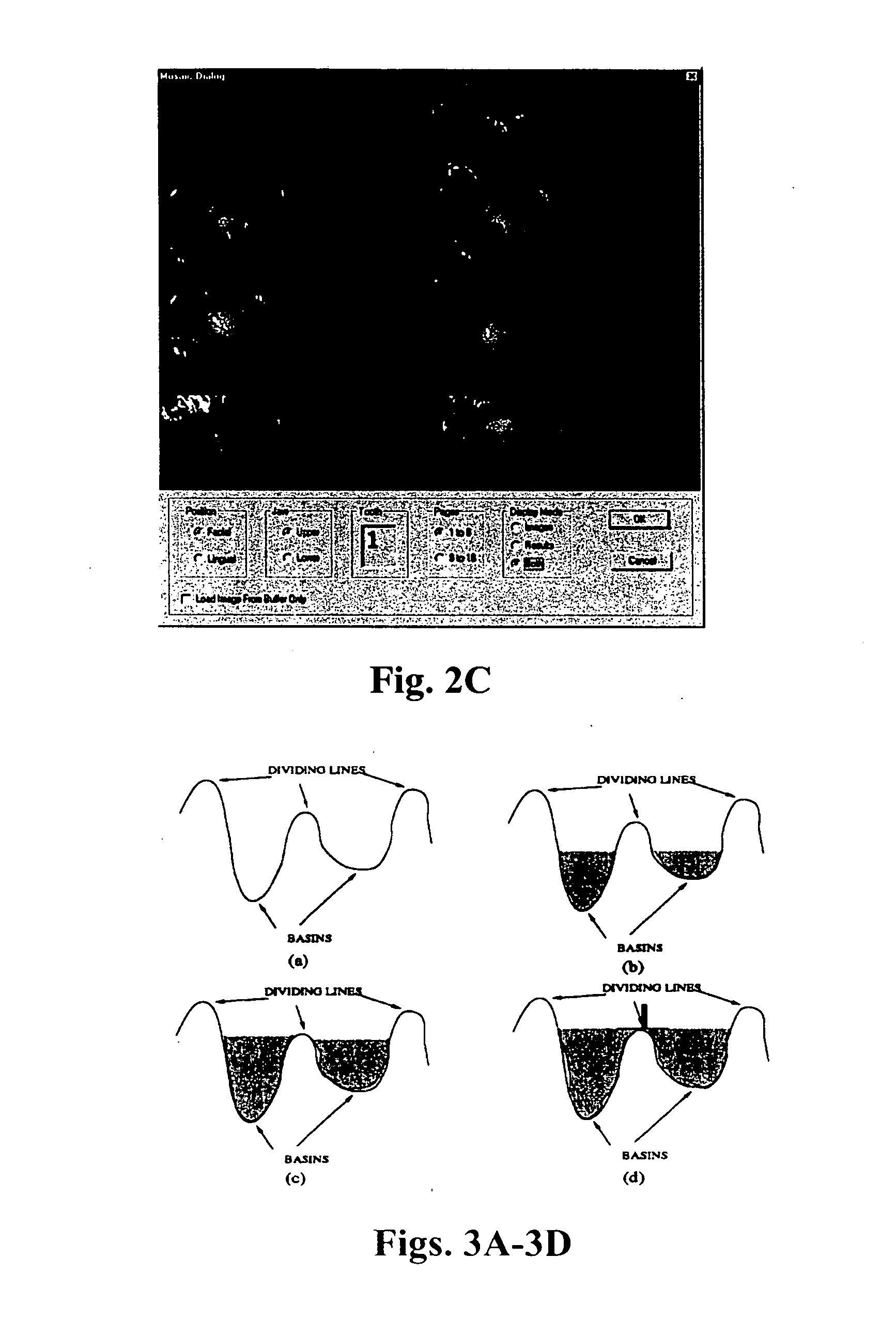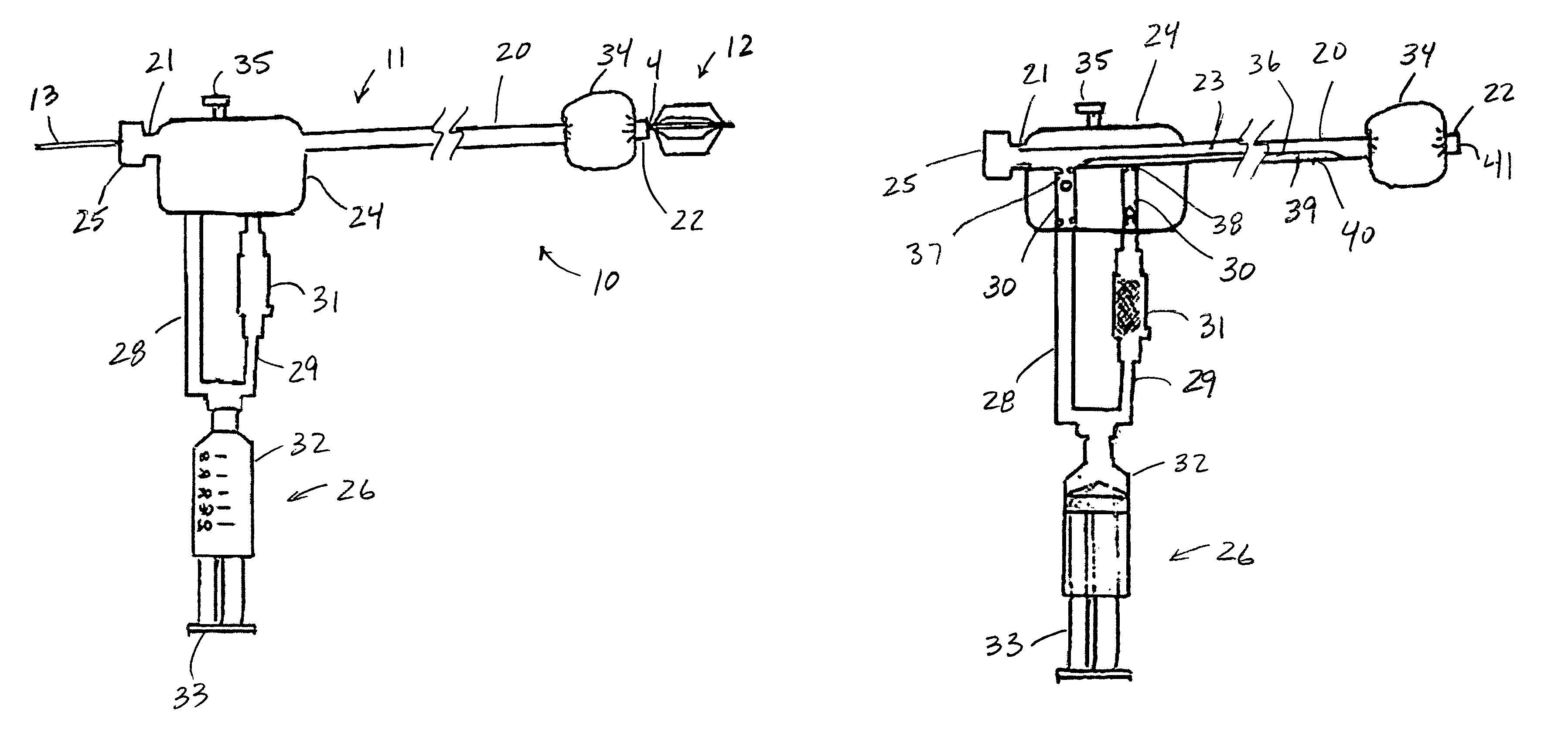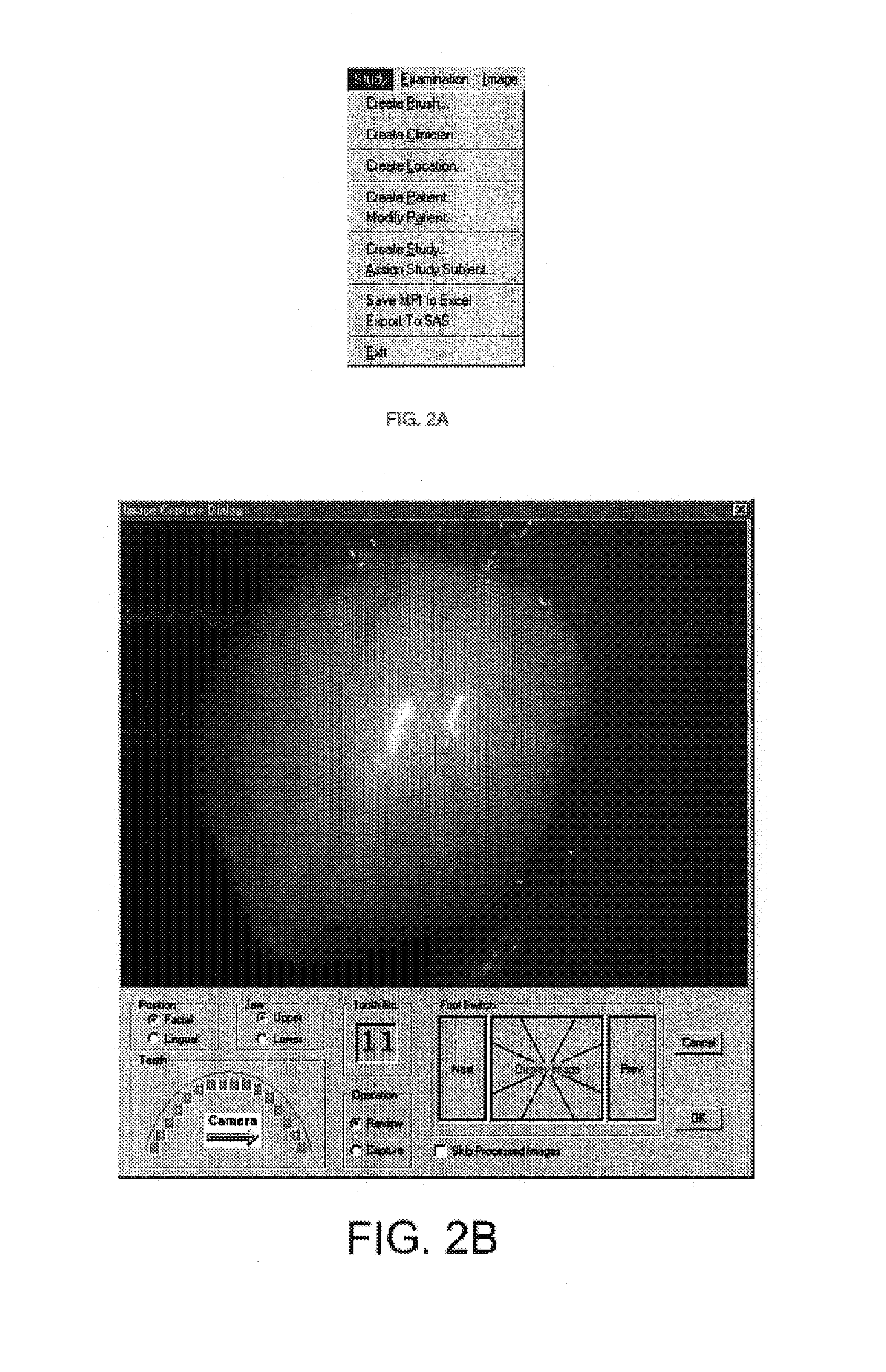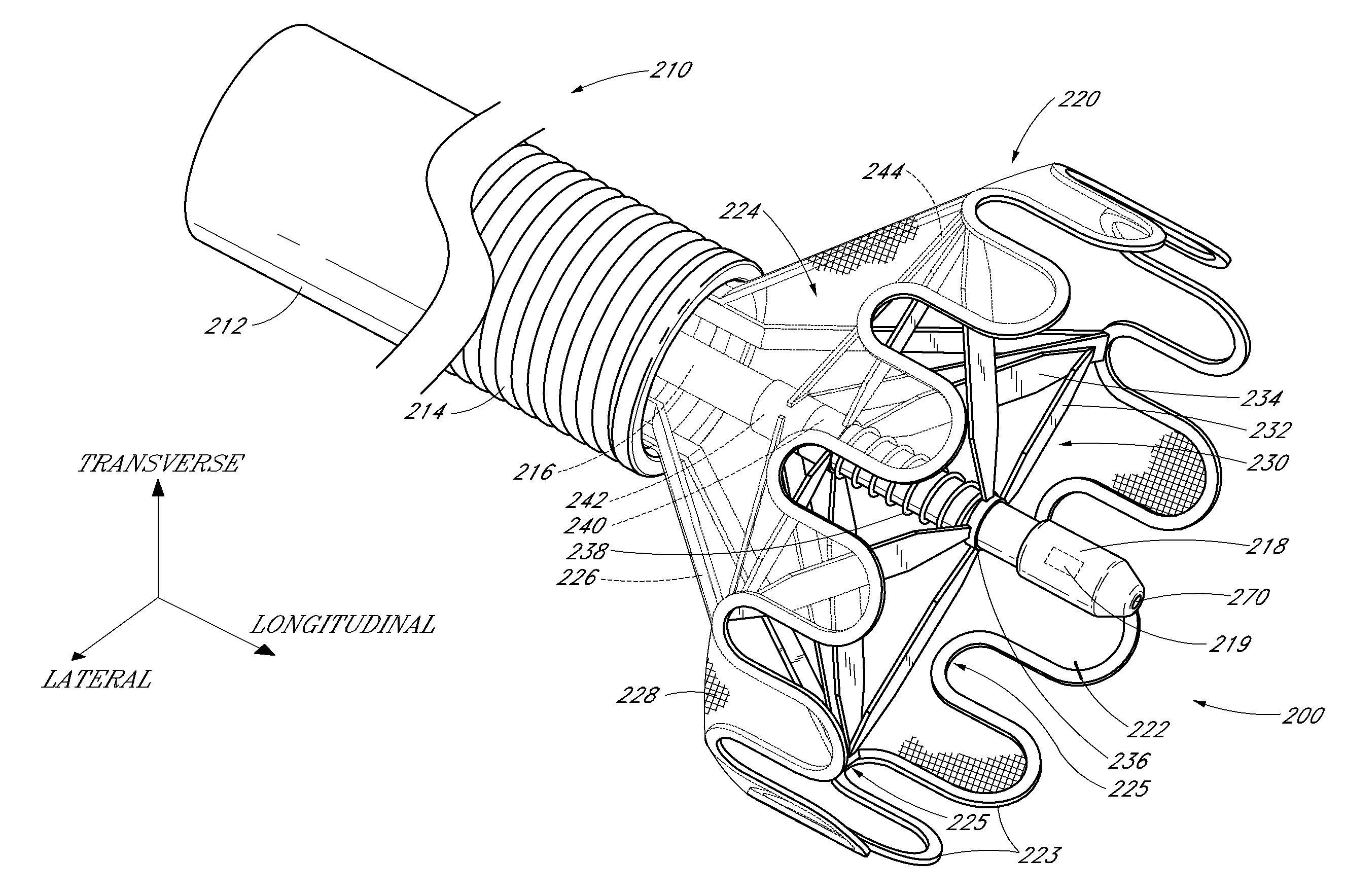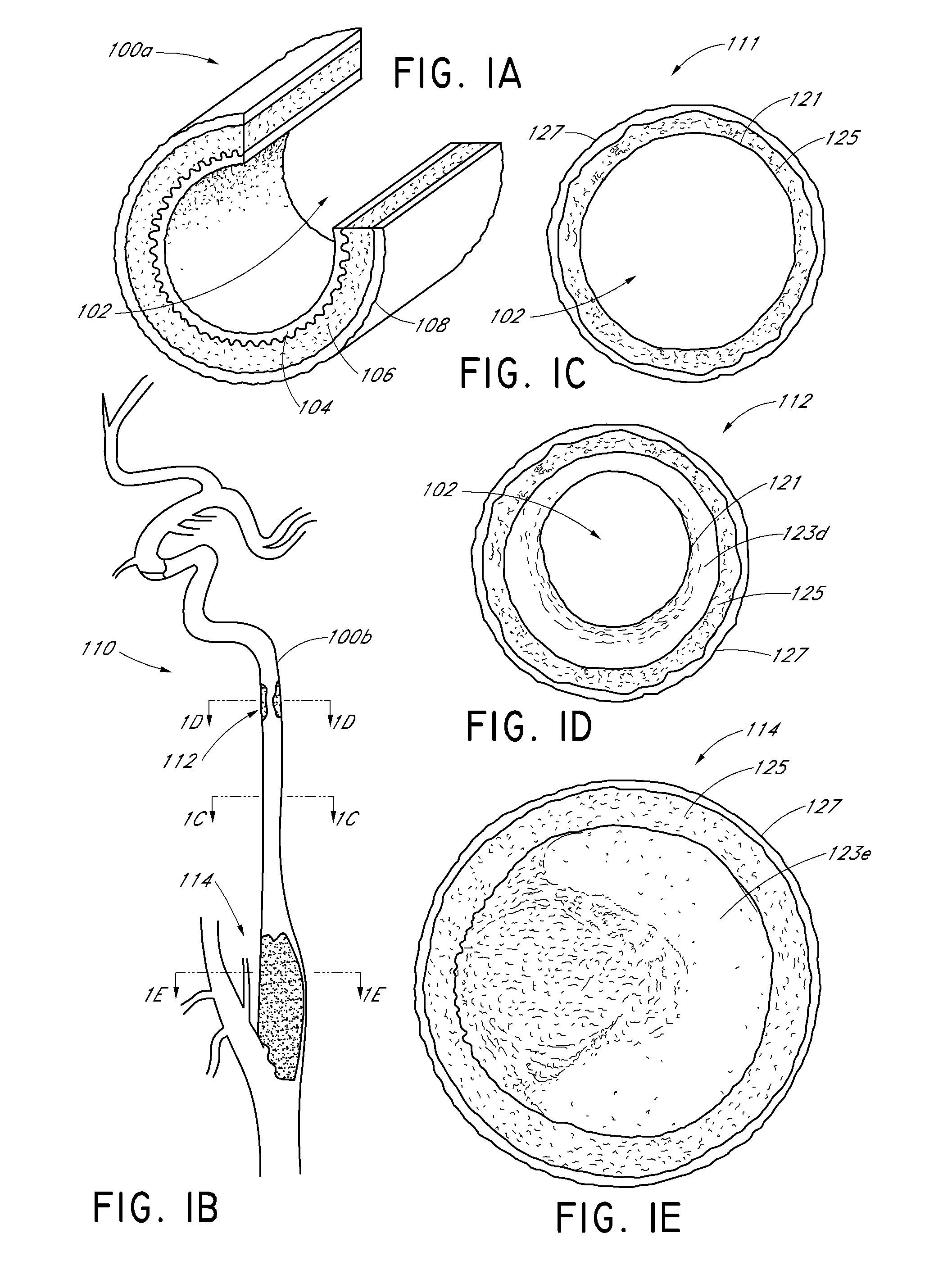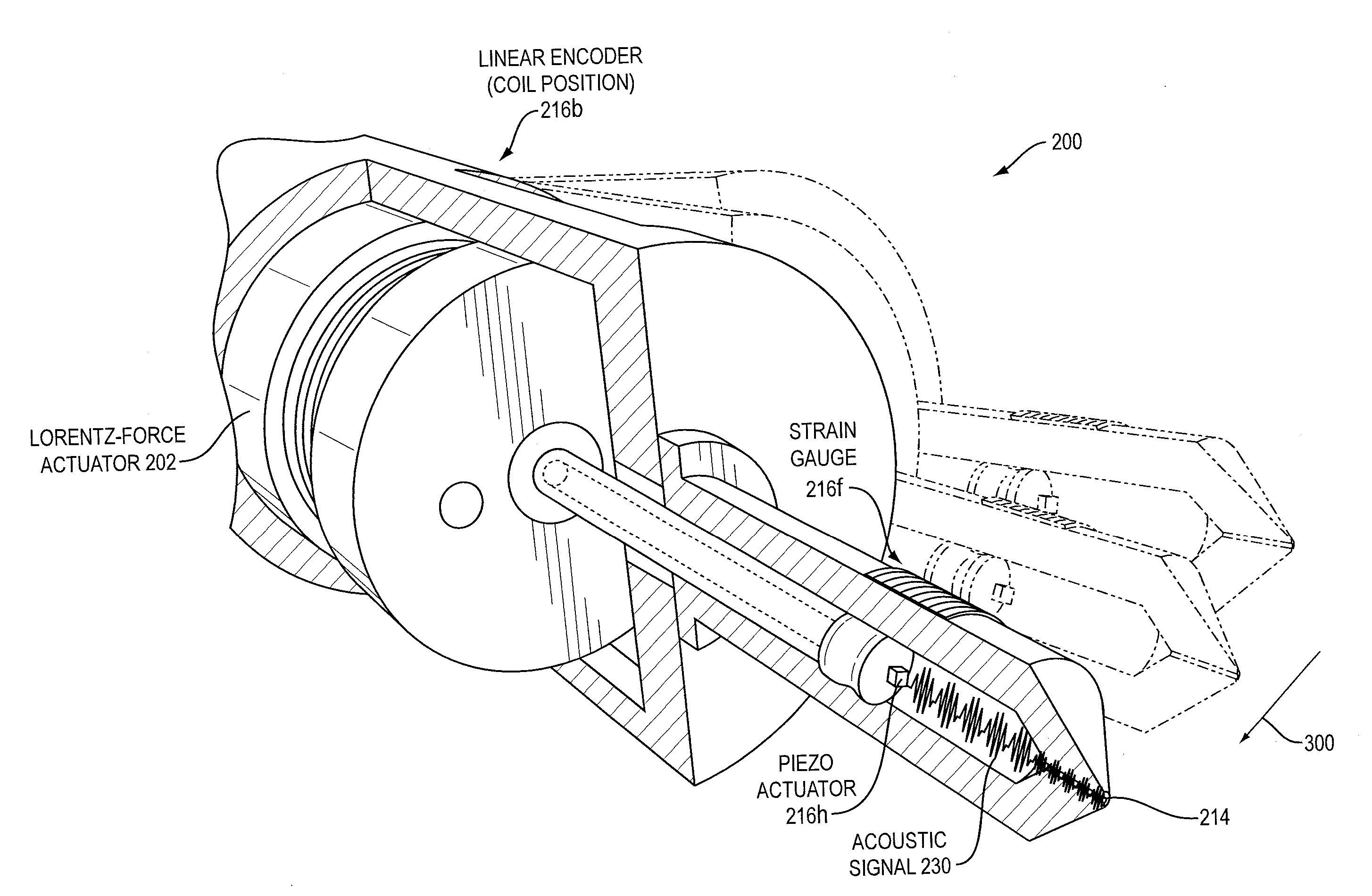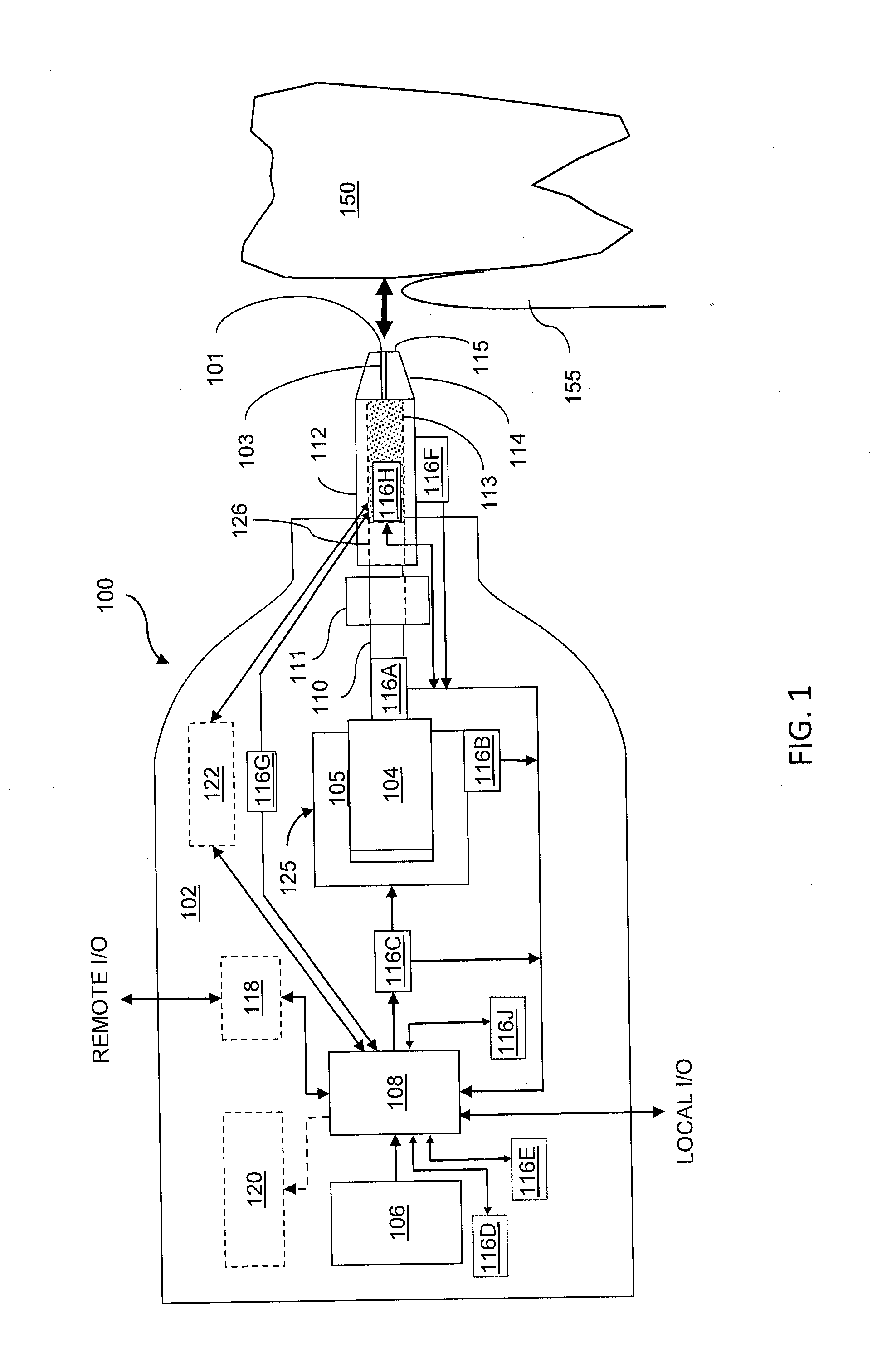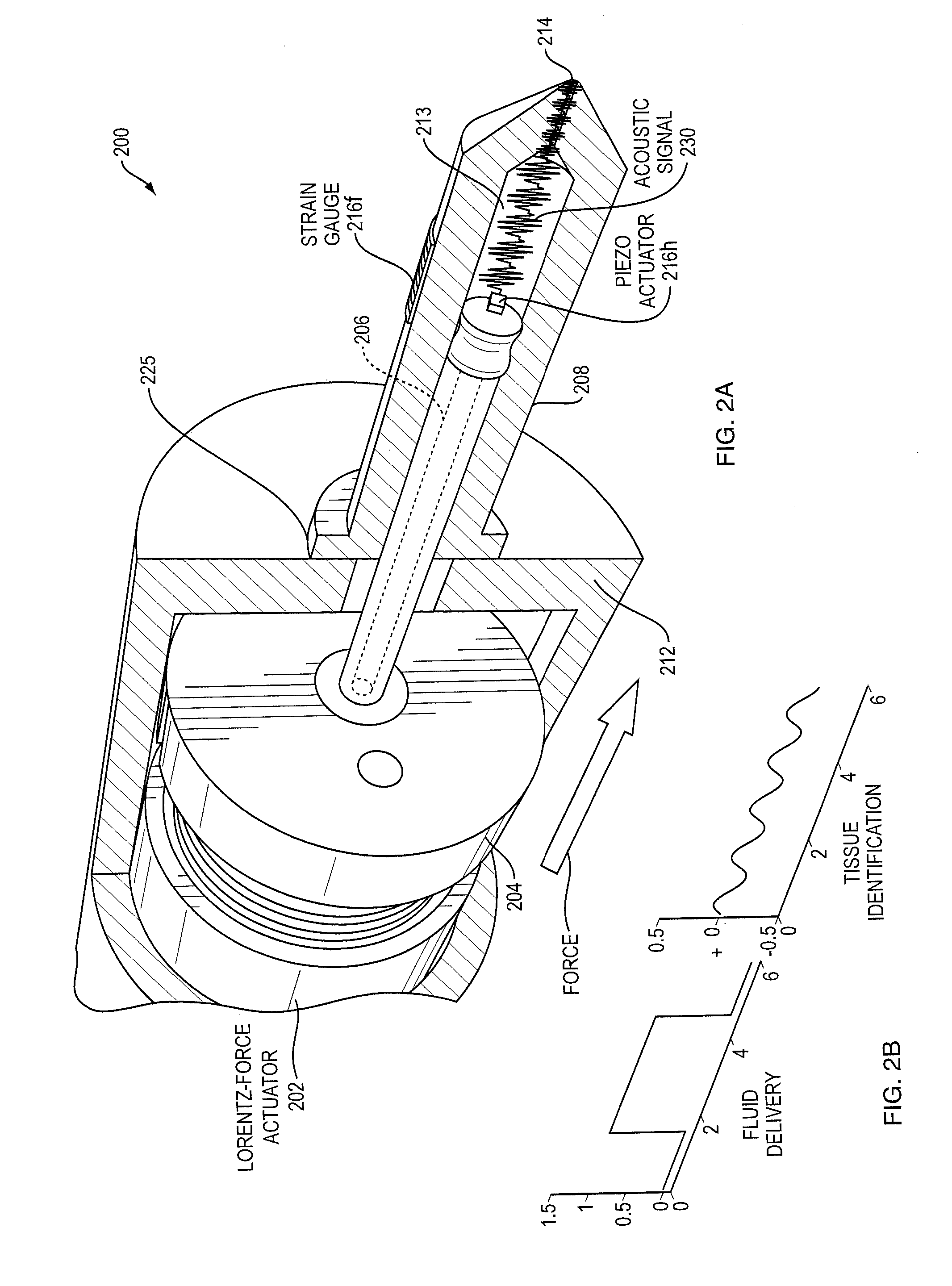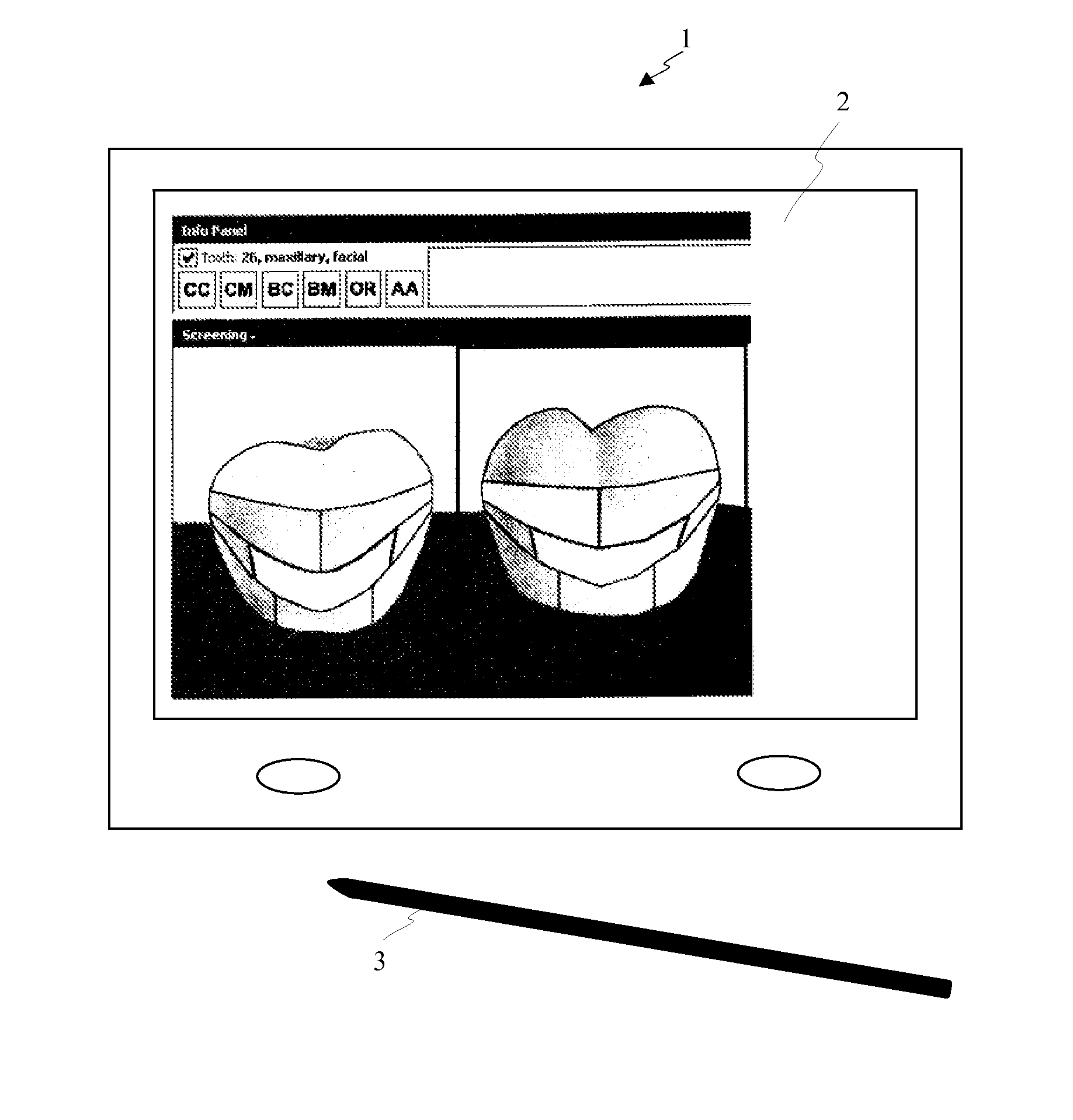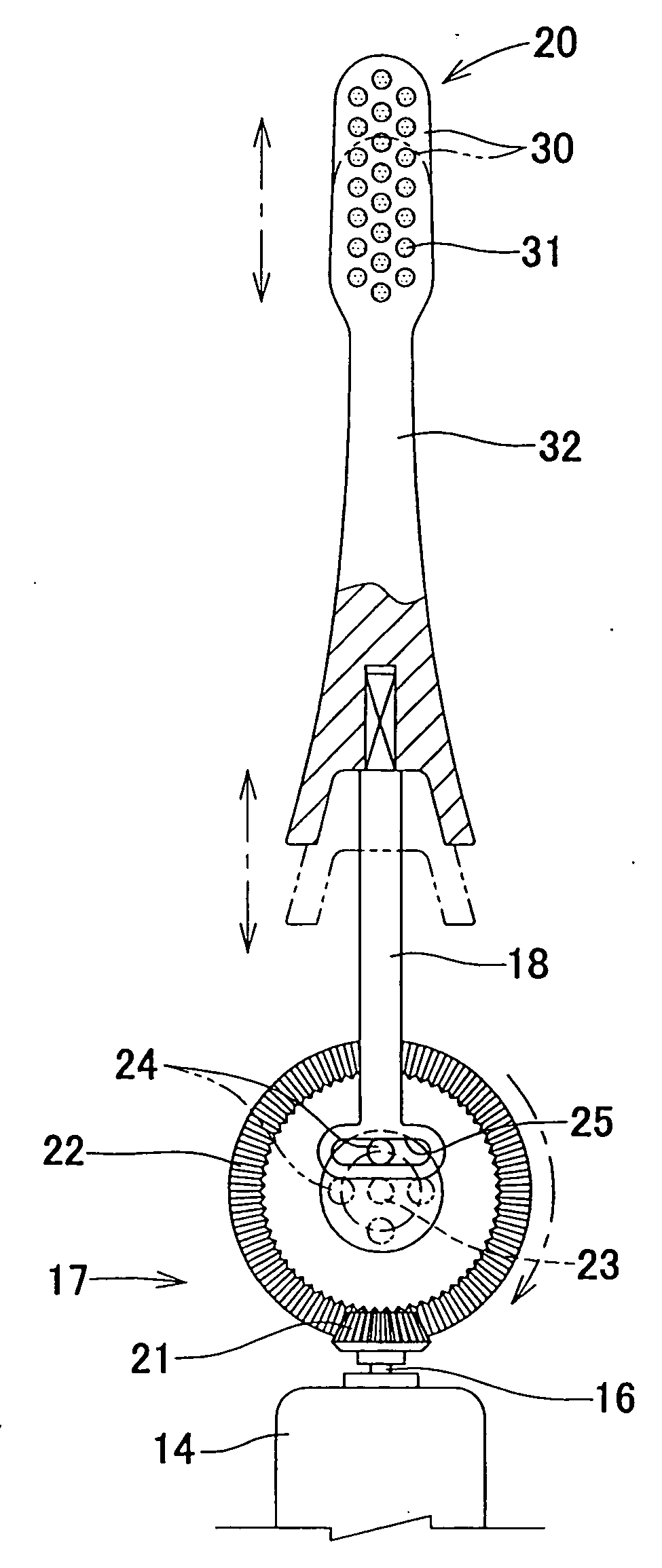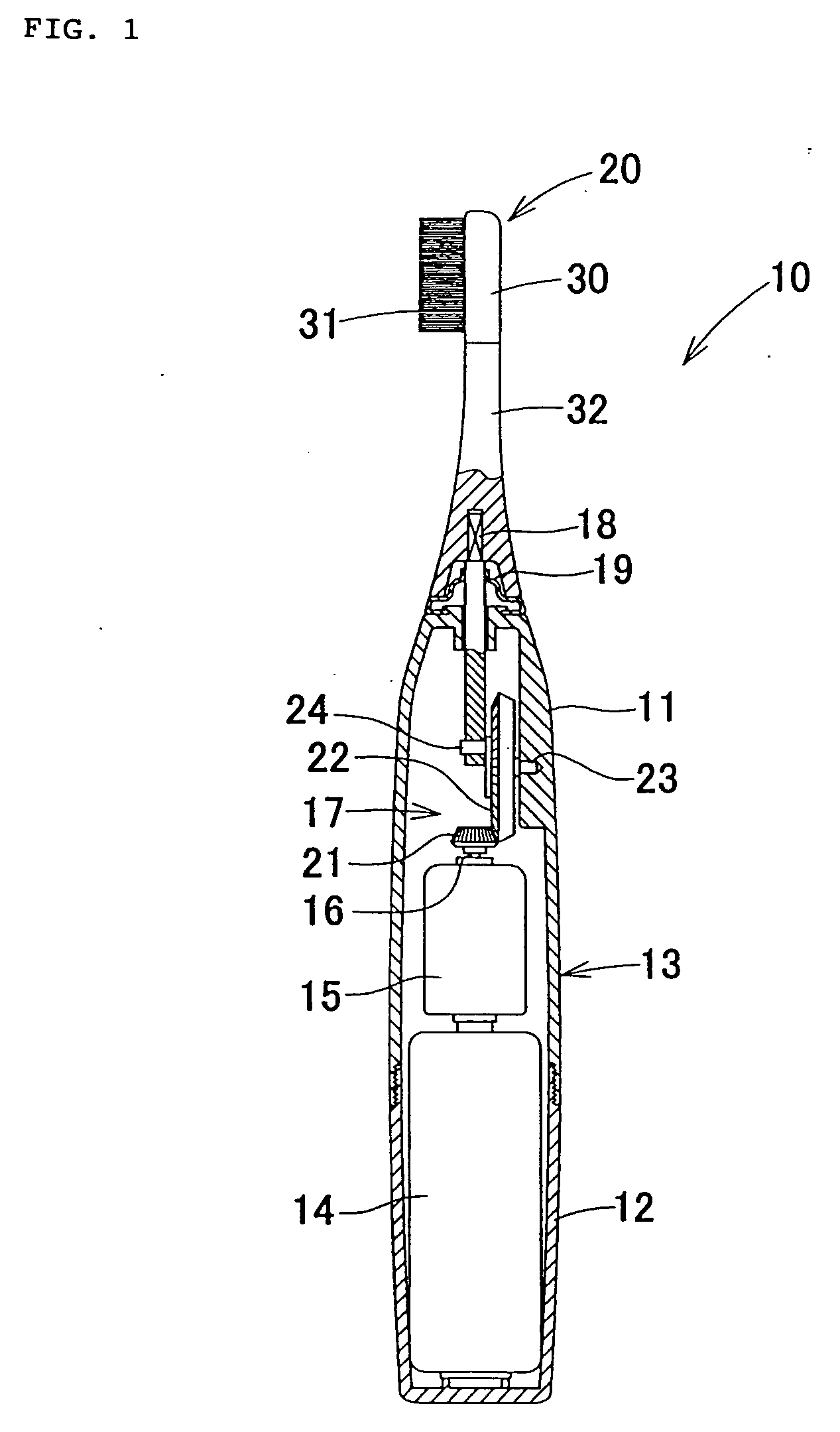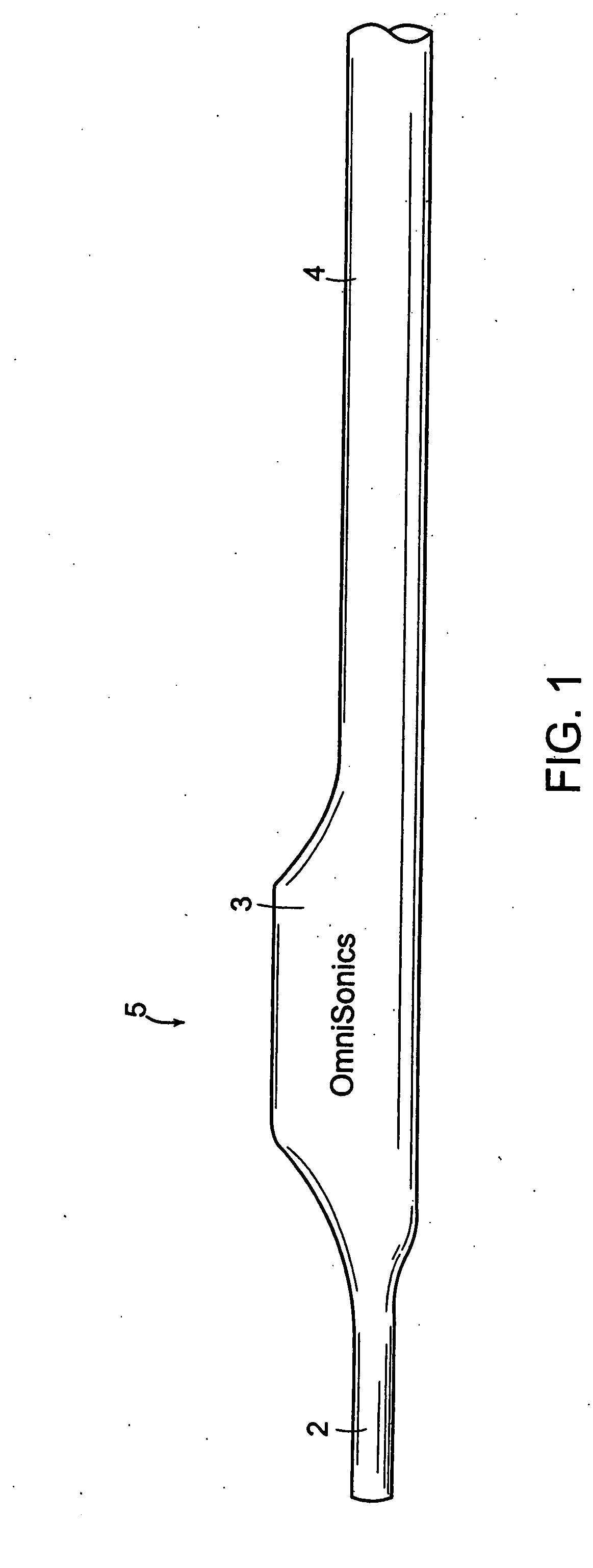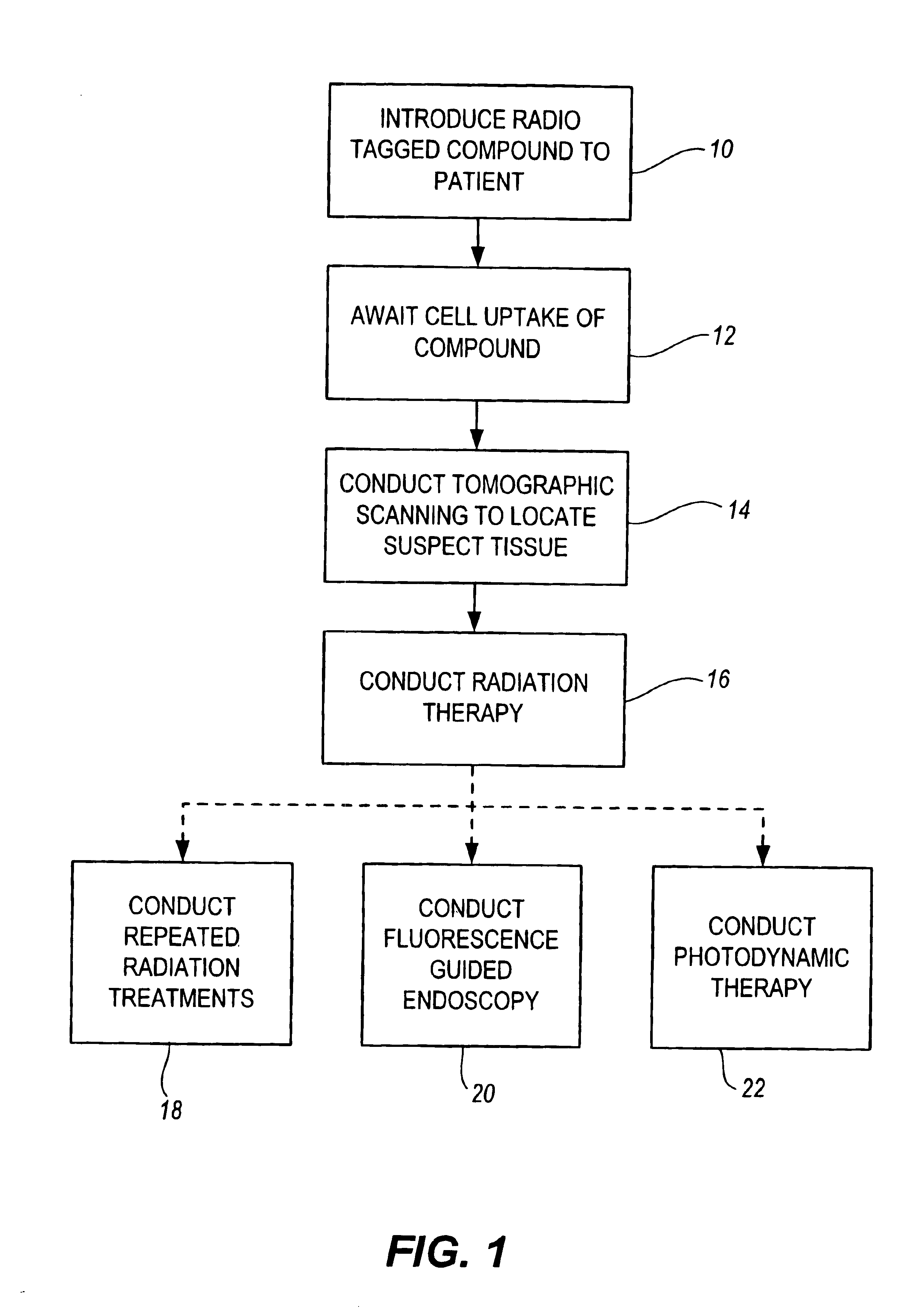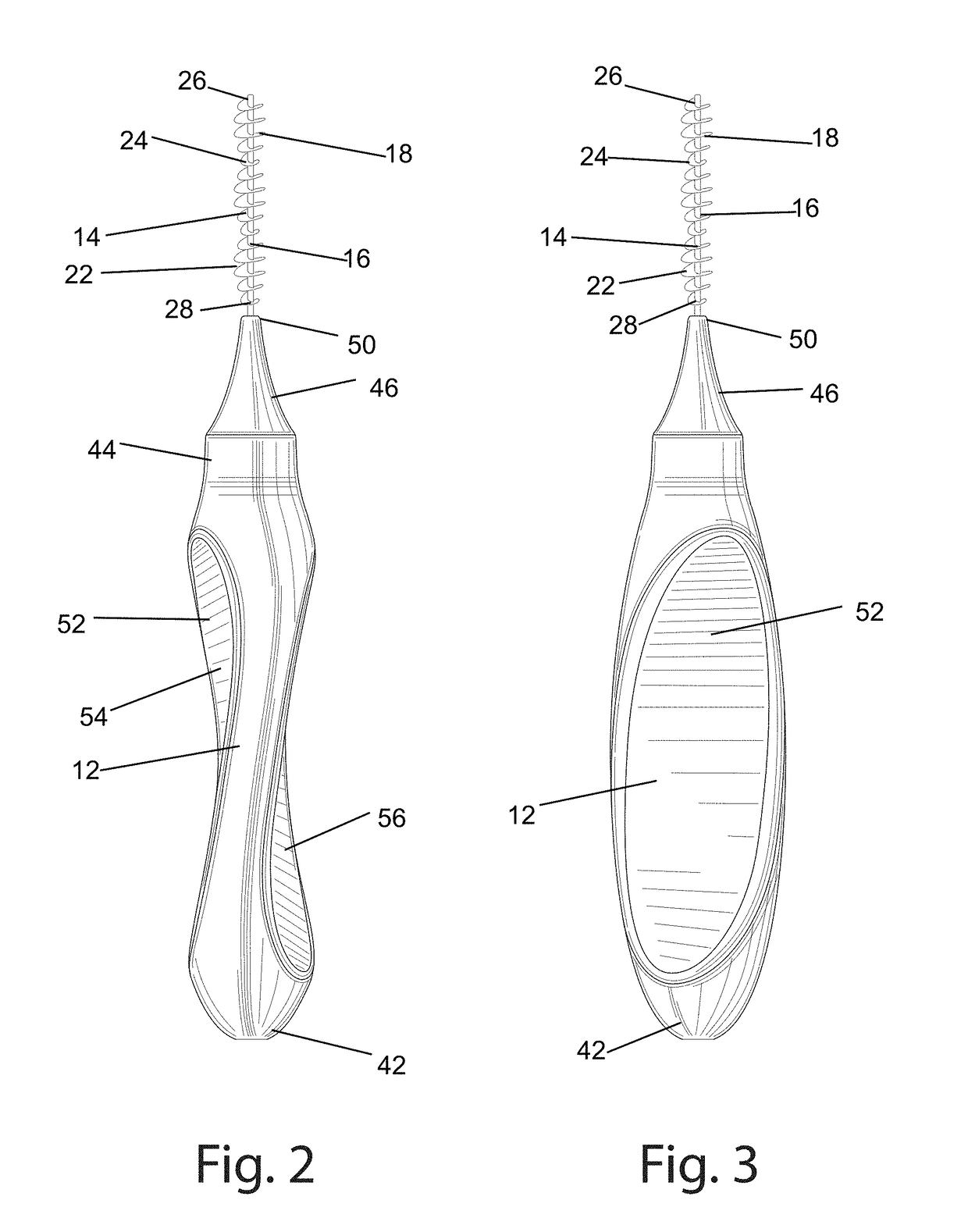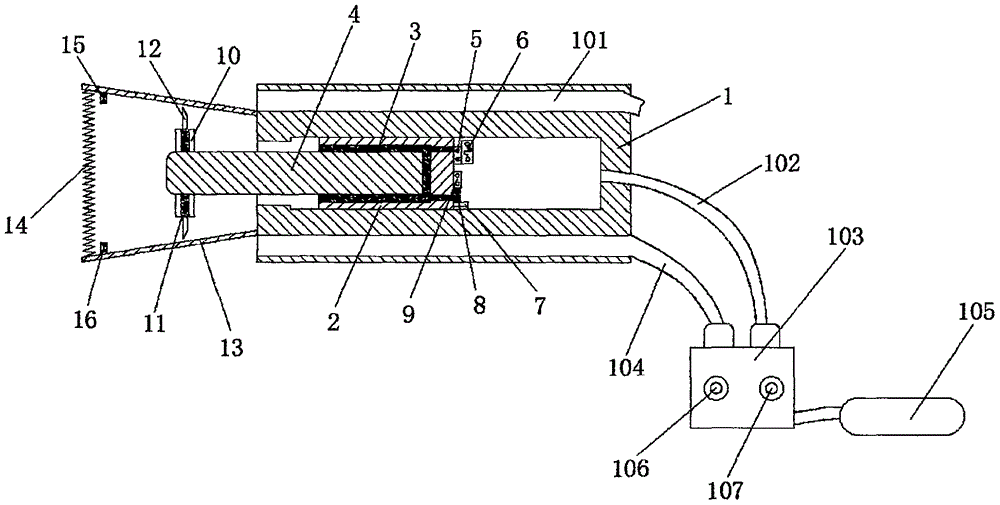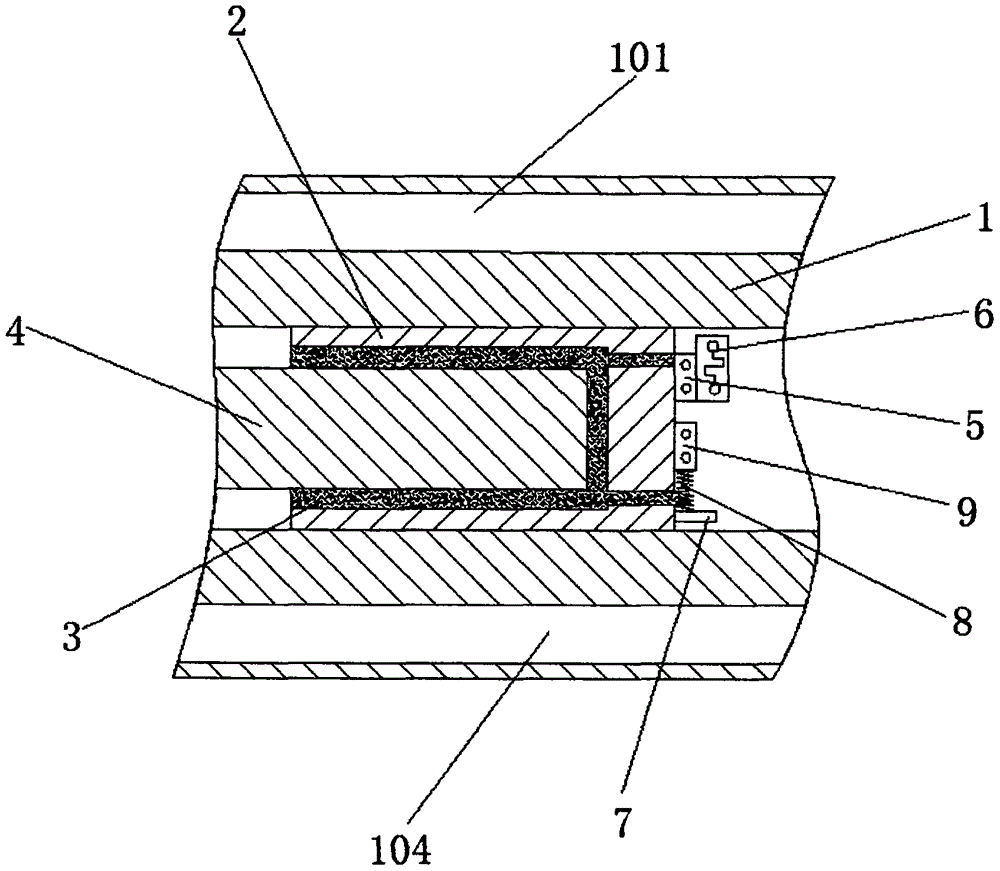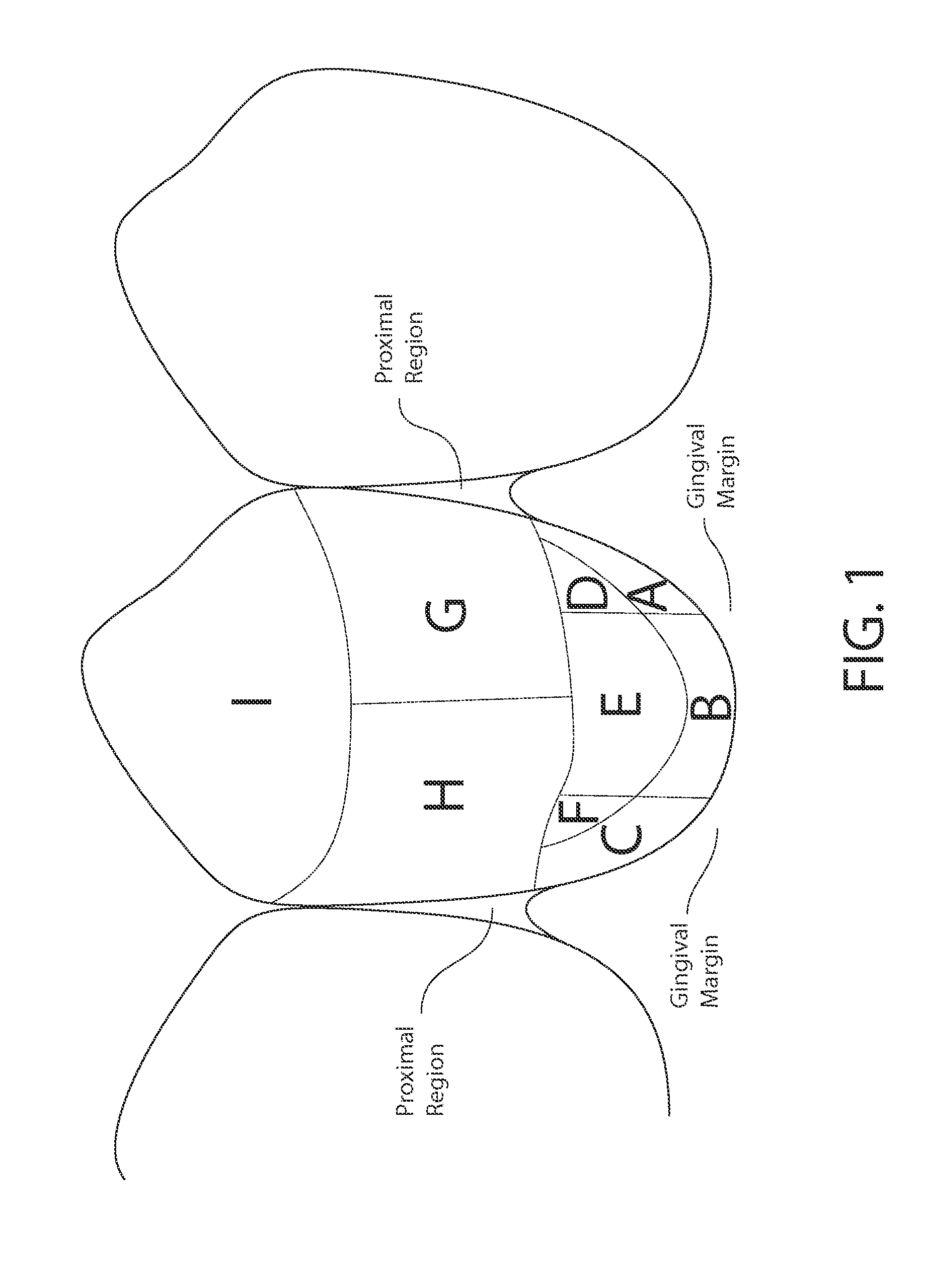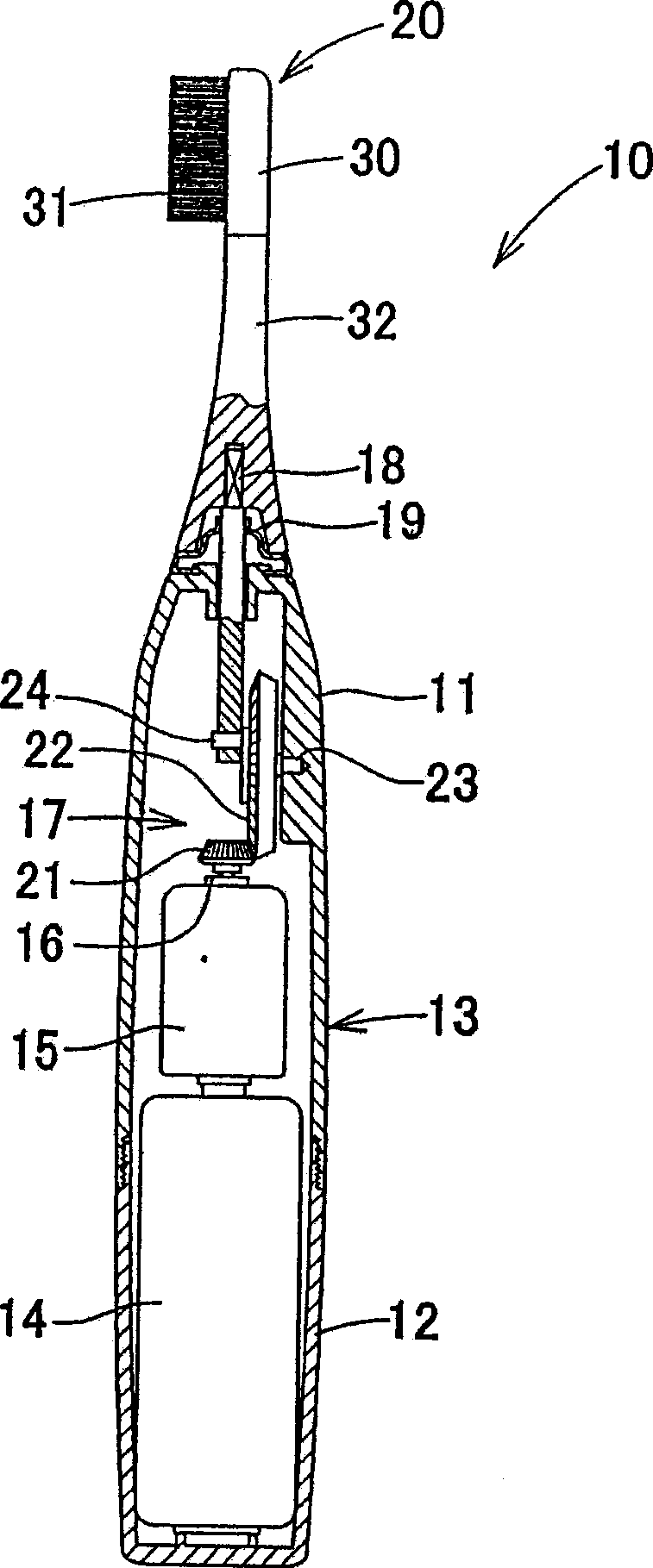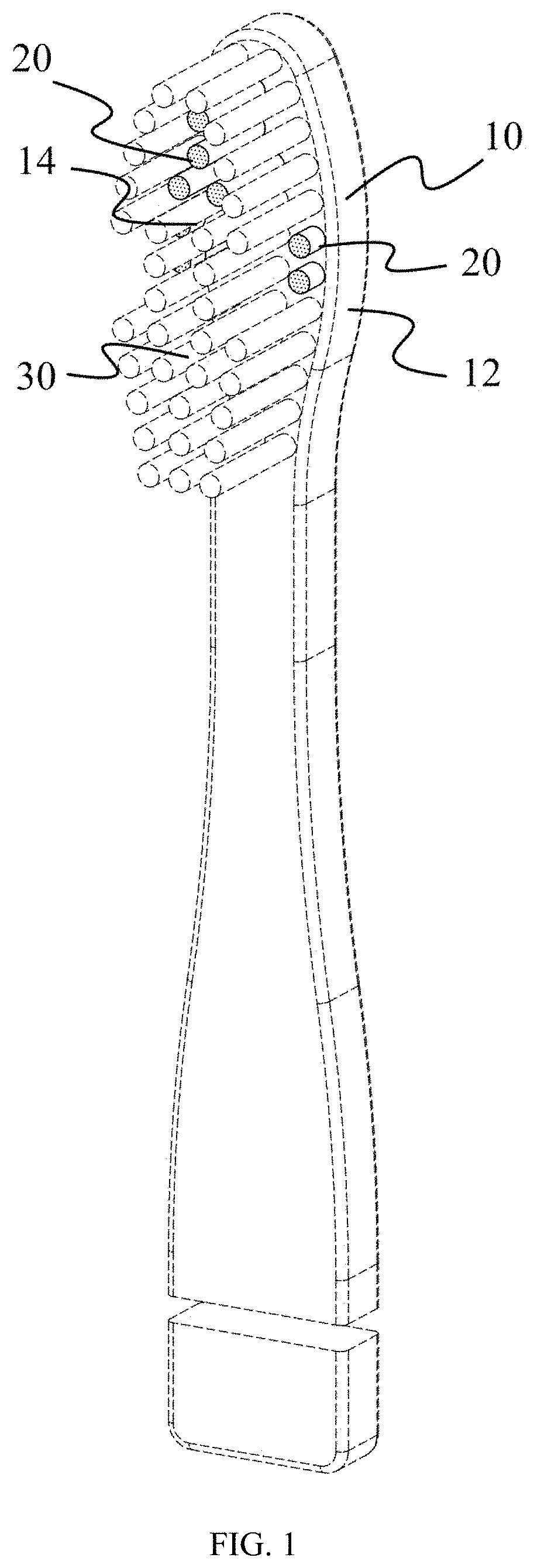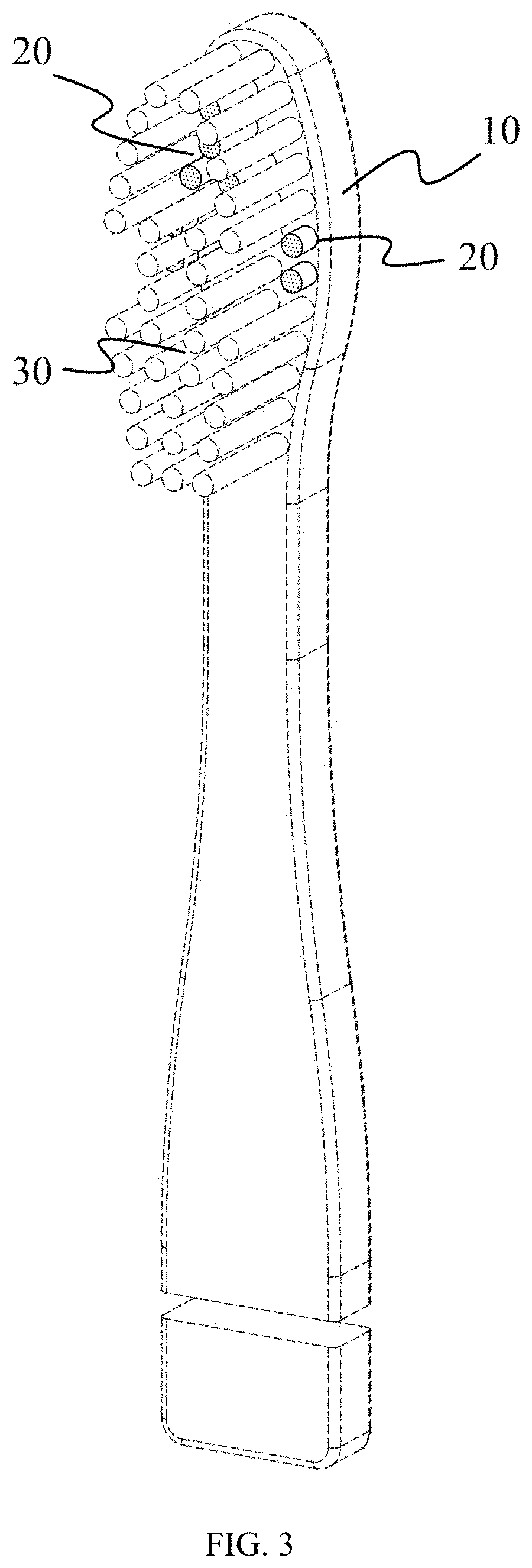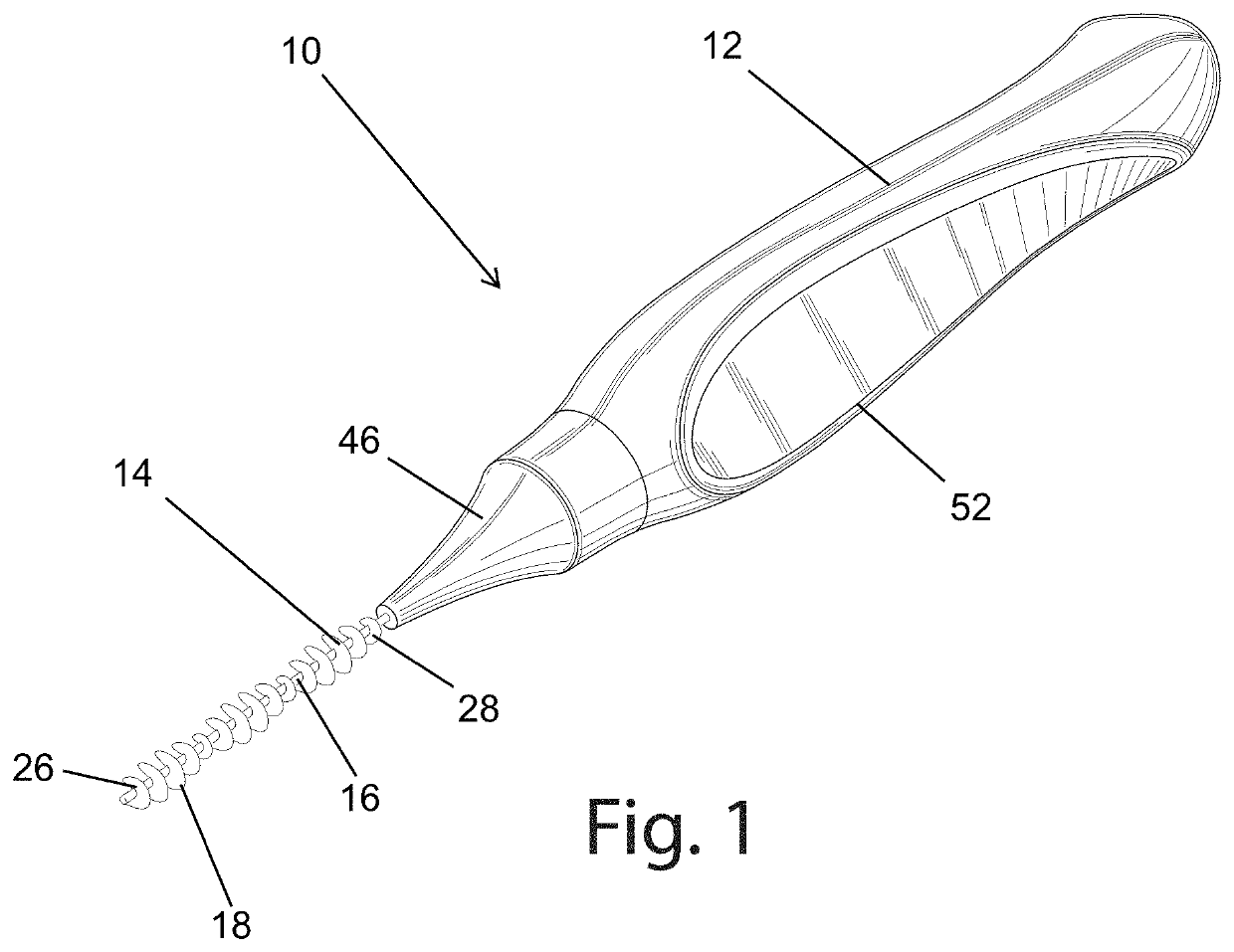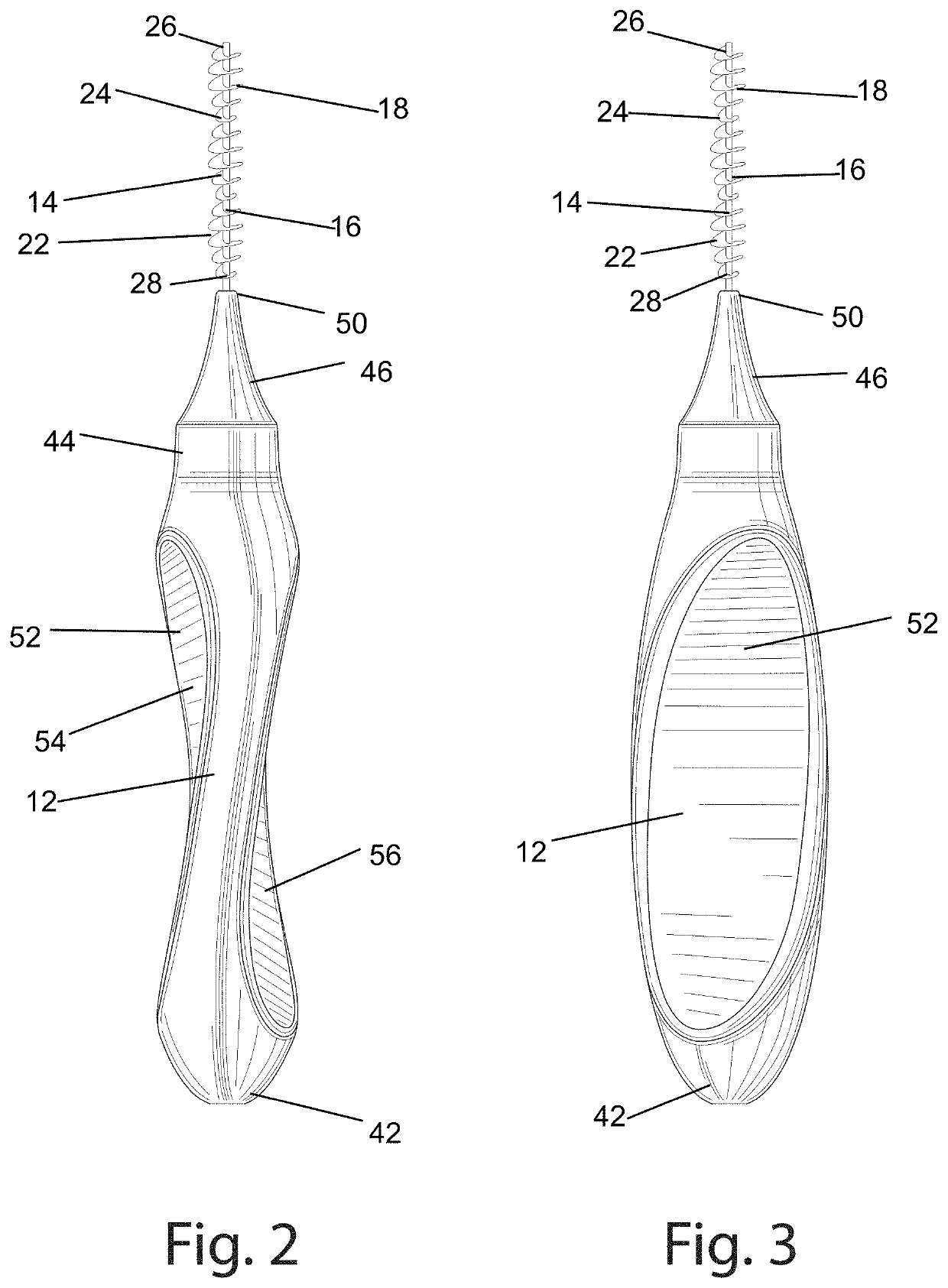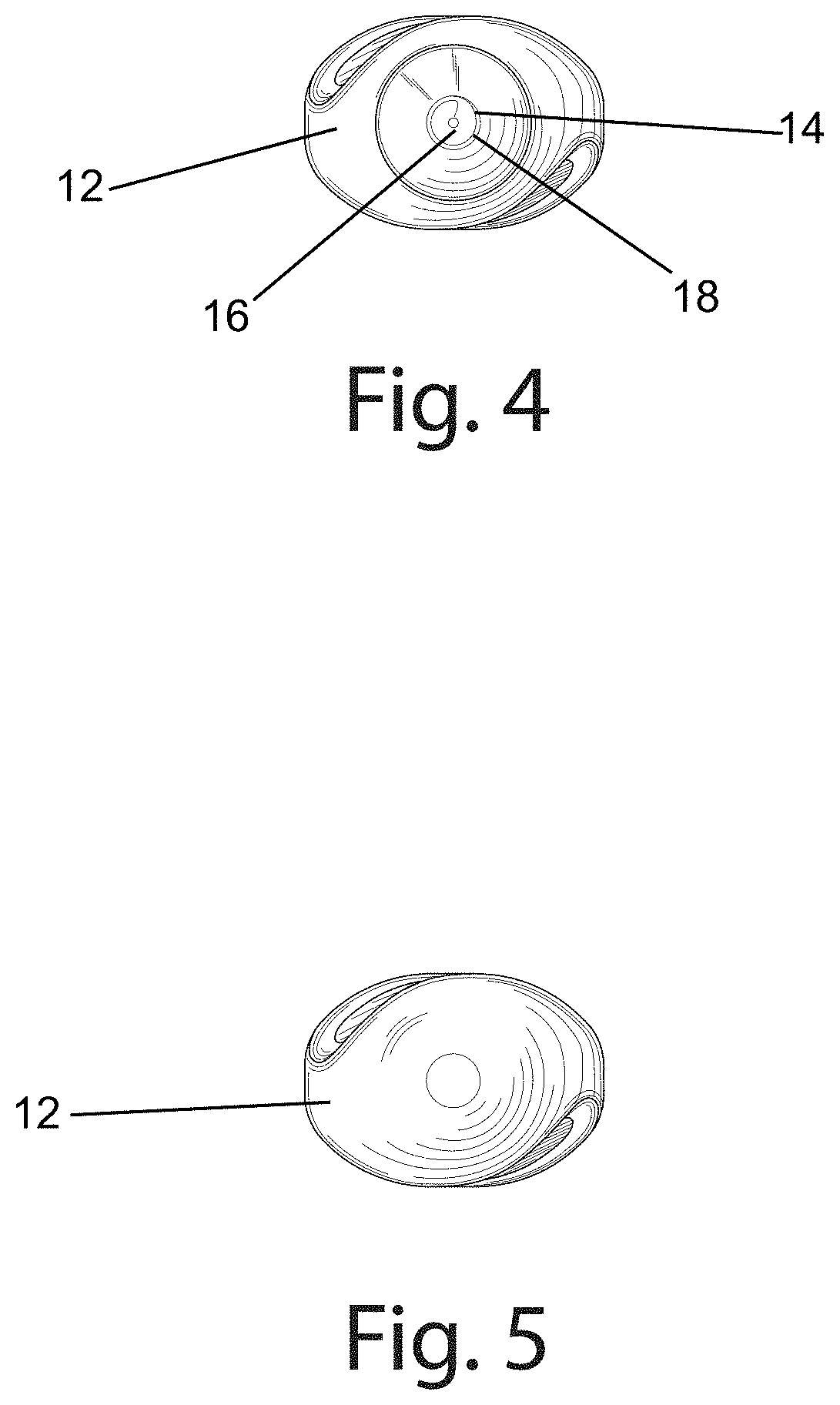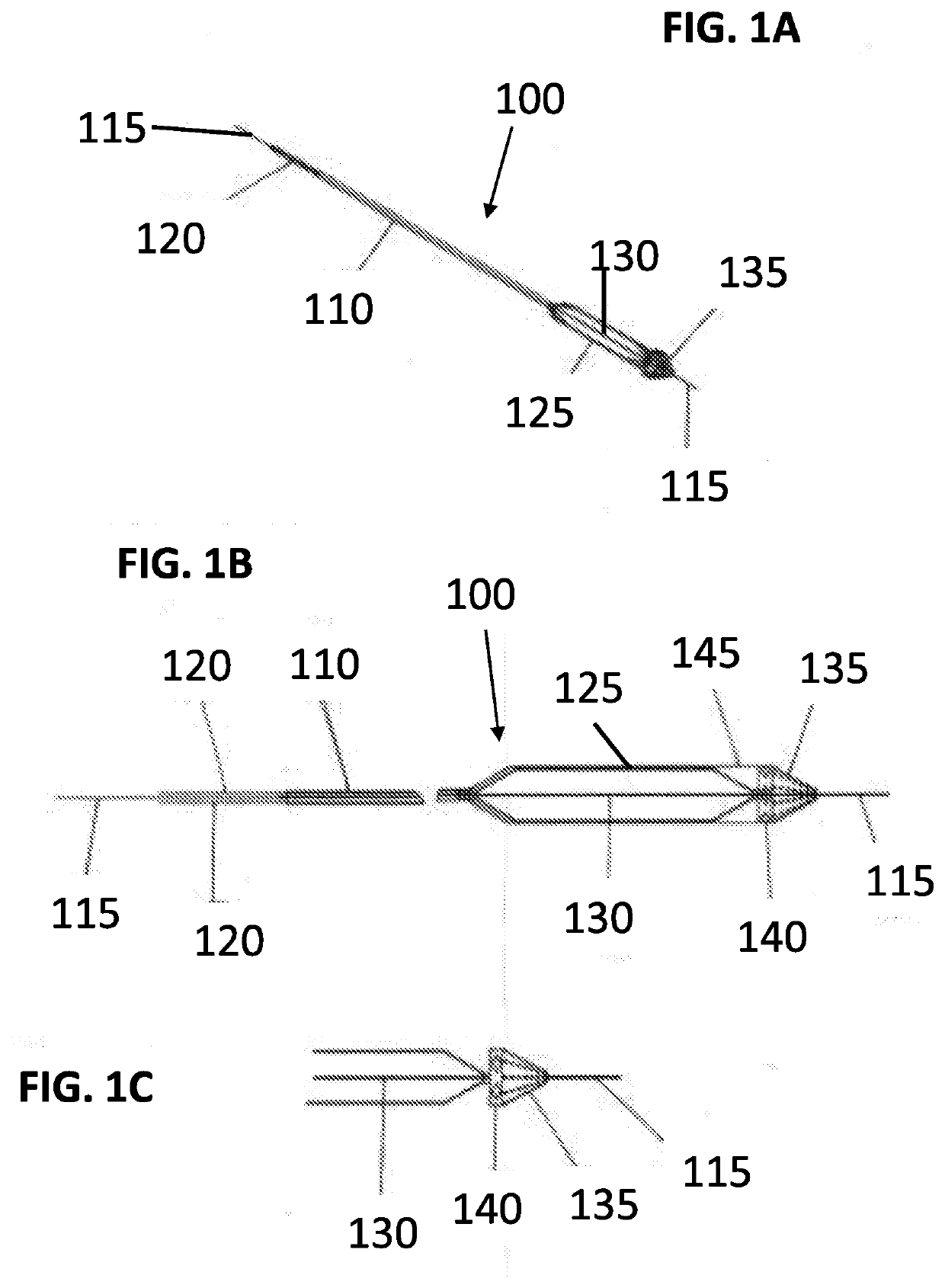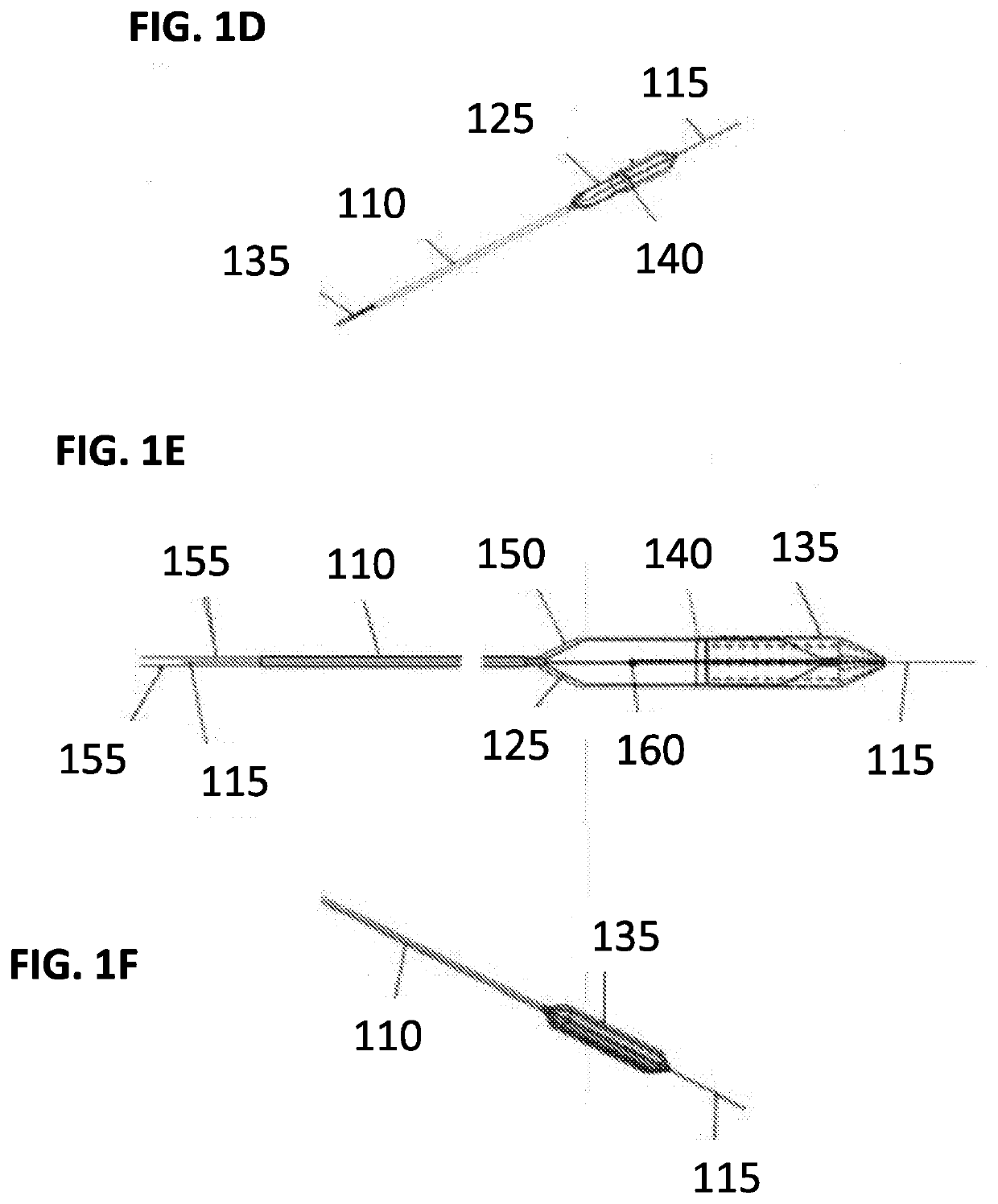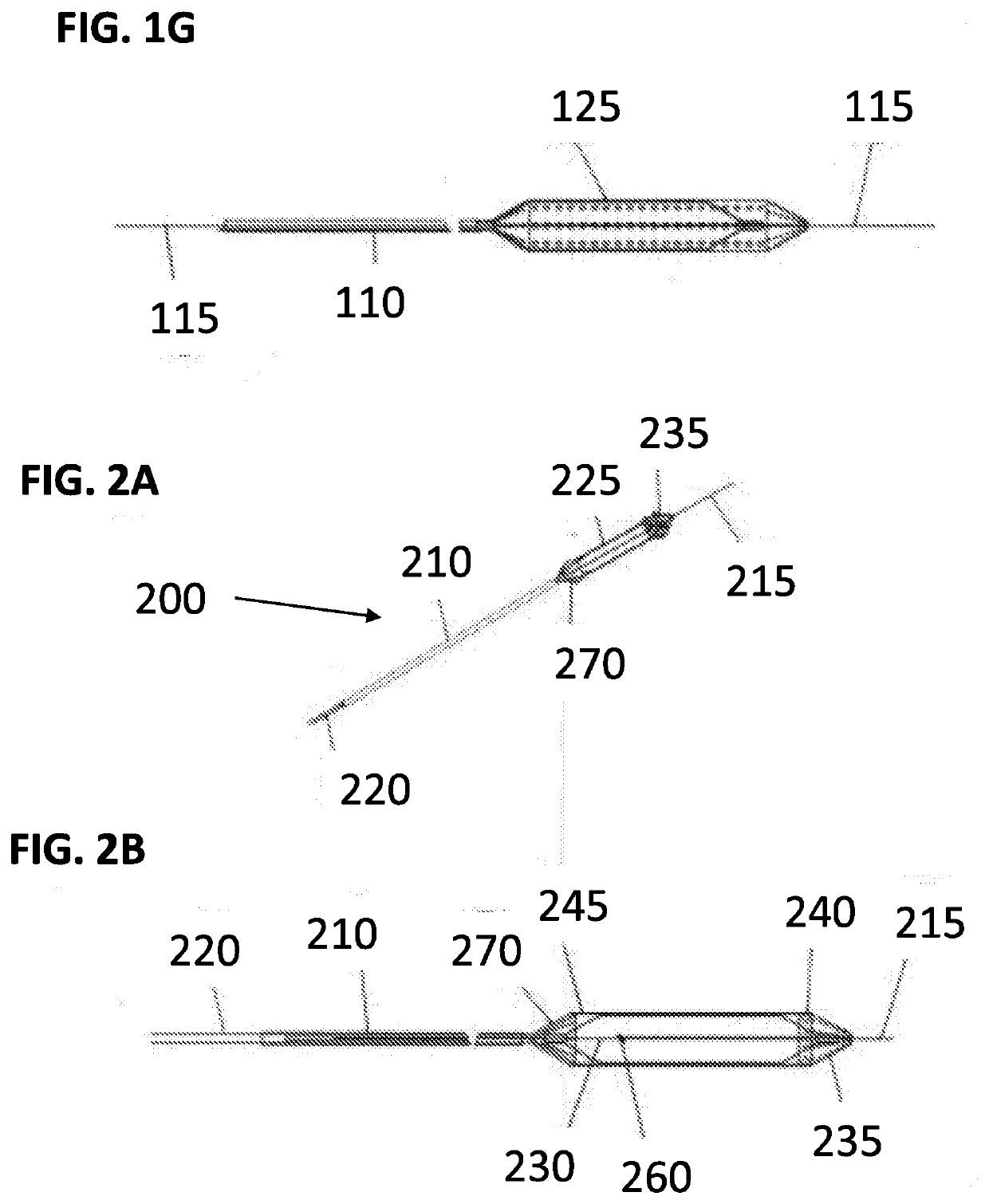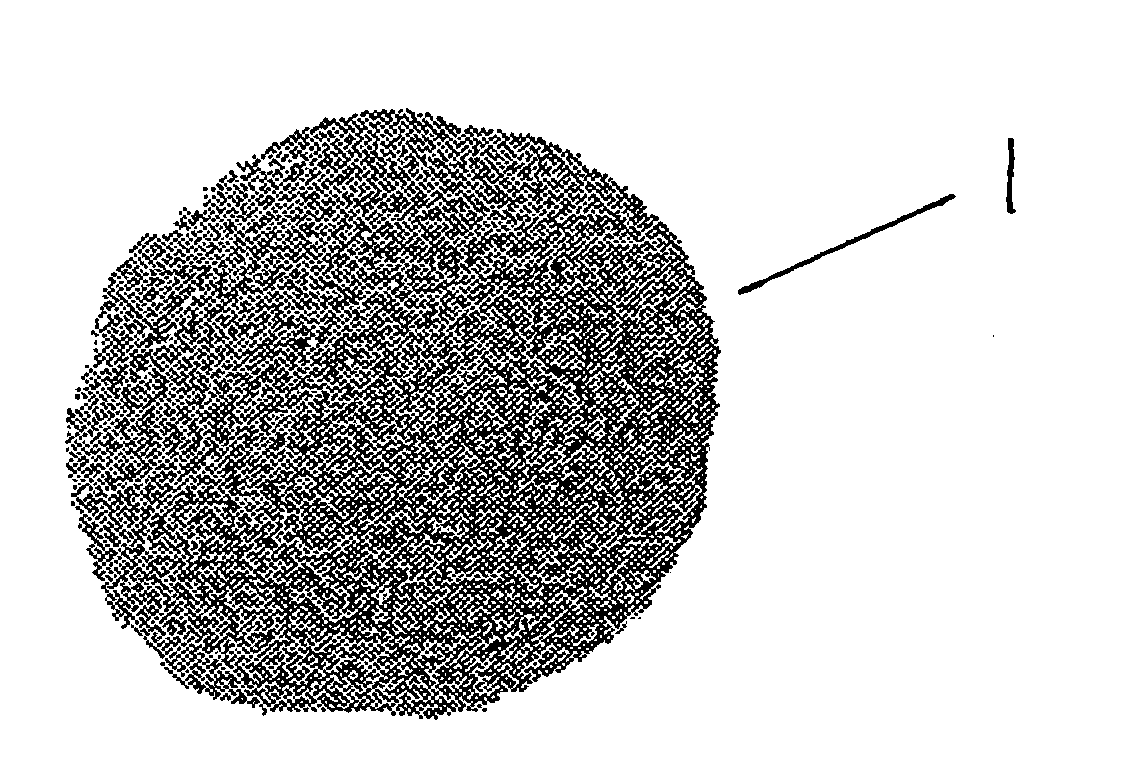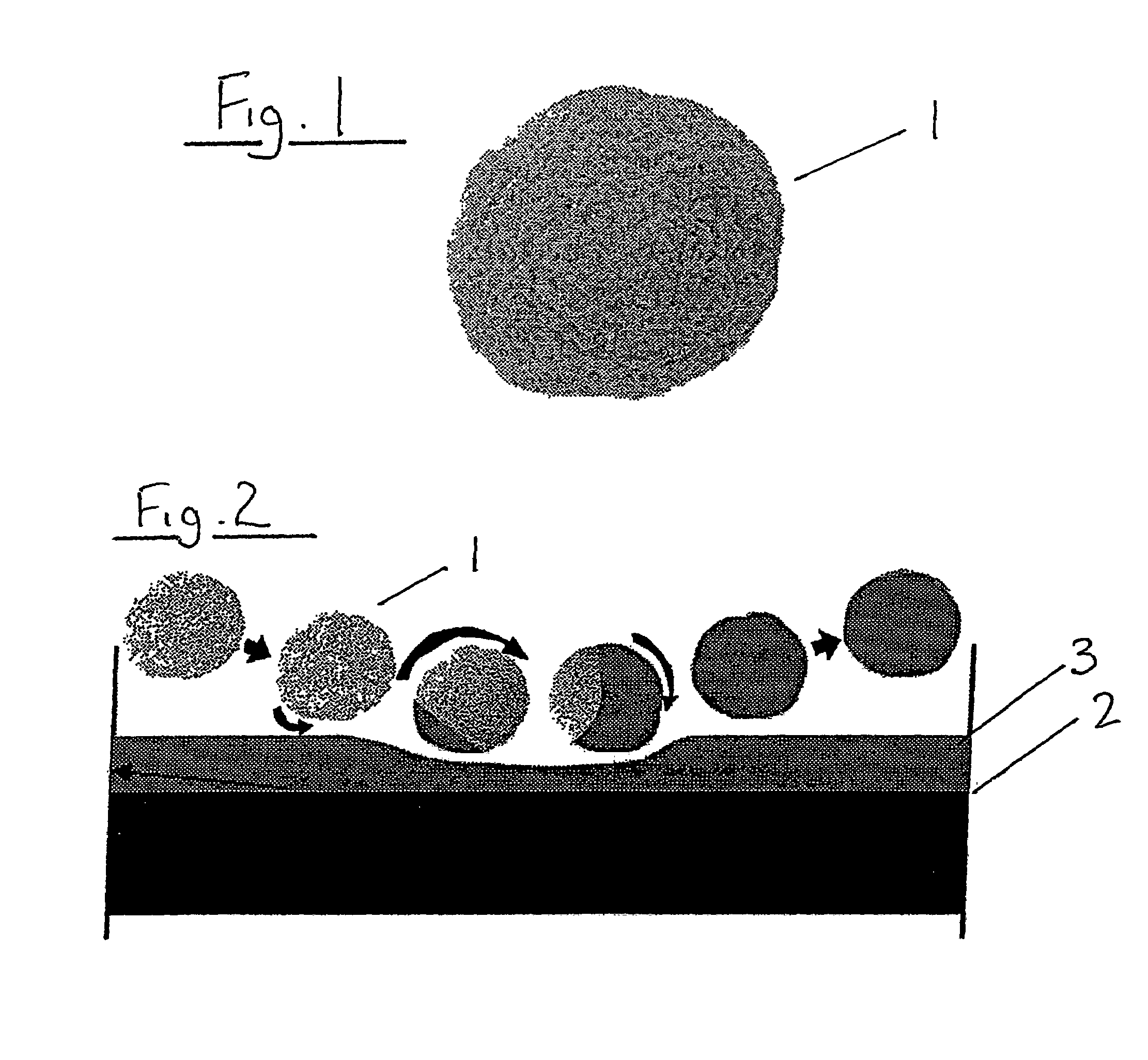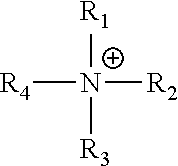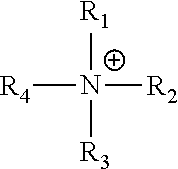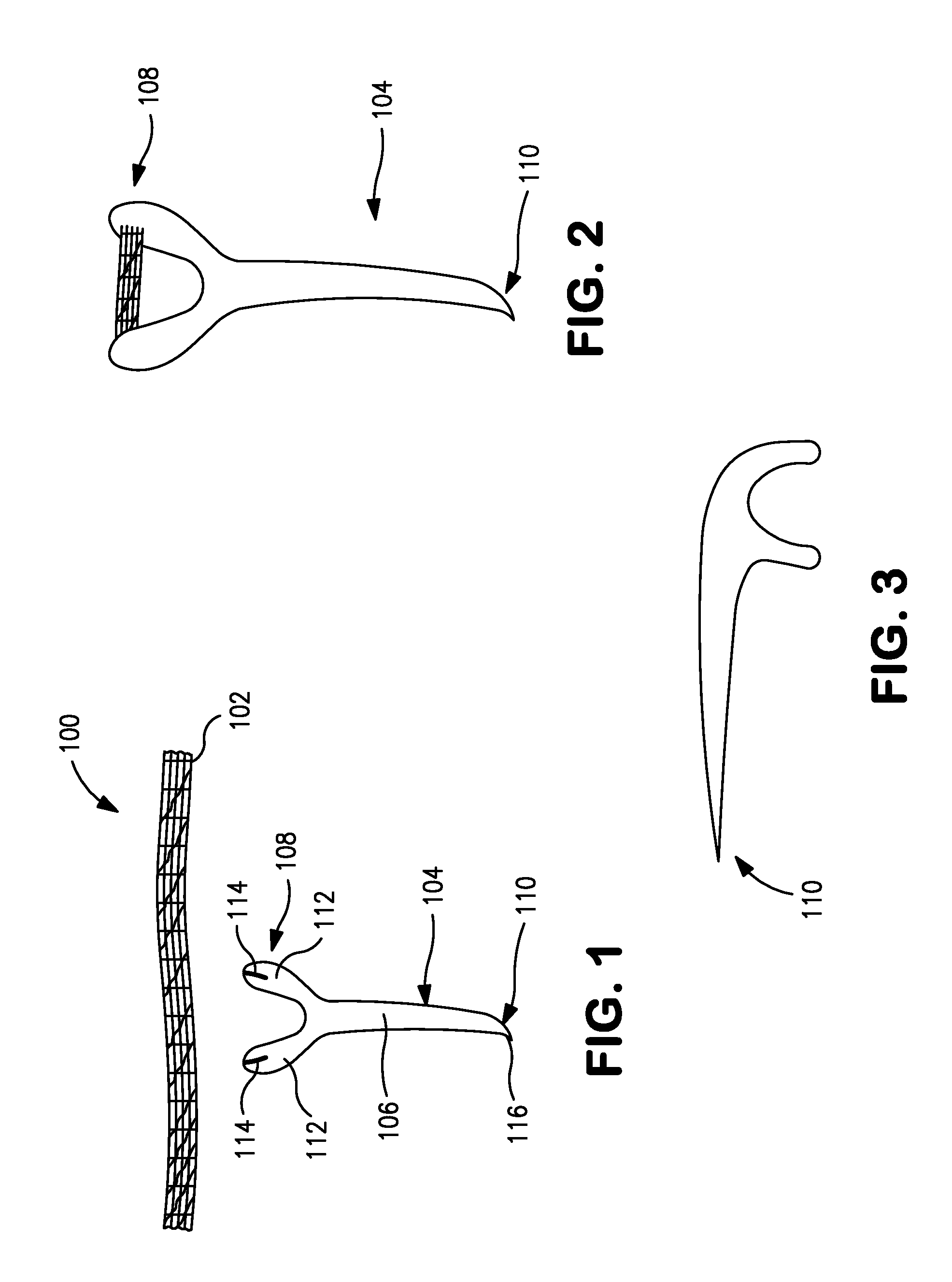Patents
Literature
Hiro is an intelligent assistant for R&D personnel, combined with Patent DNA, to facilitate innovative research.
47 results about "Plaque removal" patented technology
Efficacy Topic
Property
Owner
Technical Advancement
Application Domain
Technology Topic
Technology Field Word
Patent Country/Region
Patent Type
Patent Status
Application Year
Inventor
Baking soda, also called sodium bicarbonate, is a great home remedy for removing plaque. It neutralizes acids in the mouth, thereby reducing the amount of harmful bacteria. It also helps whiten and brighten your pearly whites.
High capacity debulking catheter with distal driven cutting wheel
InactiveUS20080065125A1Increase storage spaceImprove abilitiesUltrasonic/sonic/infrasonic diagnosticsElectrotherapyAtherectomyNose
The present invention is an atherectomy catheter with a rotary cutting knife that is driven from the distal (nose) or side (circumference) direction. The catheter collects plaque shavings in a hollow collection chamber mounted in between the rotary cutting knife and the main catheter tubing. In contrast to prior art designs, which utilized nose mounted plaque collection chambers, the present design is able to store a substantially larger volume of removed plaque, thus increasing the length of time and amount of plaque removal that can be accomplished before the catheter must be removed from the body and cleaned. This decreases medical procedure time, allows for more complete and careful plaque removal, and reduces the burden on the patient and physician.
Owner:TYCO HEALTHCARE GRP LP
Embolic protection and plaque removal system with closed circuit aspiration and filtering
InactiveUS20070021774A1Avoid mixingReduce risk of damageOperating means/releasing devices for valvesBalloon catheterSurgeryBlood vessel
Embolic protection and plaque removal apparatus and methods are provided wherein an aspiration device aspirates, filters and reperfuses blood using a closed fluid circuit having a bi-directional working lumen. The plaque removal device includes a plurality of self-expanding cutting elements that form cage that self-centers within the blood vessel to reduce the risk of trauma to the vessel lining.
Owner:NOVOSTENT CORP
Computer-implemented system and method for automated and highly accurate plaque analysis, reporting, and visualization
ActiveUS20050244794A1Facilitating clinical evaluationEase of evaluationUltrasonic/sonic/infrasonic diagnosticsImage enhancementMorphingGraphics
A computer-implemented system and method of intra-oral analysis for measuring plaque removal is disclosed. The system includes hardware for real-time image acquisition and software to store the acquired images on a patient-by-patient basis. The system implements algorithms to segment teeth of interest from surrounding gum, and uses a real-time image-based morphing procedure to automatically overlay a grid onto each segmented tooth. Pattern recognition methods are used to classify plaque from surrounding gum and enamel, while ignoring glare effects due to the reflection of camera light and ambient light from enamel regions. The system integrates these components into a single software suite with an easy-to-use graphical user interface (GUI) that allows users to do an end-to-end run of a patient record, including tooth segmentation of all teeth, grid morphing of each segmented tooth, and plaque classification of each tooth image.
Owner:COLGATE PALMOLIVE CO
Embolic protection and plaque removal system with closed circuit aspiration and filtering
InactiveUS8002725B2Avoid mixingReduce risk of damageBalloon catheterOperating means/releasing devices for valvesSurgeryBlood vessel
Embolic protection and plaque removal apparatus and methods are provided wherein an aspiration device aspirates, filters and reperfuses blood using a closed fluid circuit having a bi-directional working lumen. The plaque removal device includes a plurality of self-expanding cutting elements that form a cage that self-centers within the blood vessel to reduce the risk of trauma to the vessel lining.
Owner:NOVOSTENT CORP
Computer-implemented system and method for automated and highly accurate plaque analysis, reporting, and visualization
ActiveUS7324661B2Ease of evaluationUltrasonic/sonic/infrasonic diagnosticsImage enhancementMorphingGraphics
A computer-implemented system and method of intra-oral analysis for measuring plaque removal is disclosed. The system includes hardware for real-time image acquisition and software to store the acquired images on a patient-by-patient basis. The system implements algorithms to segment teeth of interest from surrounding gum, and uses a real-time image-based morphing procedure to automatically overlay a grid onto each segmented tooth. Pattern recognition methods are used to classify plaque from surrounding gum and enamel, while ignoring glare effects due to the reflection of camera light and ambient light from enamel regions. The system integrates these components into a single software suite with an easy-to-use graphical user interface (GUI) that allows users to do an end-to-end run of a patient record, including tooth segmentation of all teeth, grid morphing of each segmented tooth, and plaque classification of each tooth image.
Owner:COLGATE PALMOLIVE CO
Dentifrices incorporating spherical particles for enhanced cleaning of teeth
InactiveUS6083489AGreat tendencyTrend downCosmetic preparationsToilet preparationsToothpasteVolumetric Mass Density
Toothpaste and other dentifrices formulated to include substantially spherical cleaning particles for enhanced plaque-removal capability. The cleaning particles are relatively large, having a diameter in a range from about 10 microns to about 200 microns, and are substantially round-edge and nonjagged so as to be far less abrasive compared to conventional abrasive particles, which tend to have a more jagged profile. Preferred cleaning particles include hollow glass spheres, which not only provide enhanced plaque-removal properties but which yield dental compositions having greatly reduced density. Air and other gases may optionally be entrained into the inventive dental compositions, either during manufacture or upon dispensing the dental compositions onto a toothbrush.
Owner:ULTRADENT PROD INC
Vascular plaque removal systems, devices, and methods
Systems, devices, and methods for removing plaque from a patient's vasculature are disclosed. In one example, a medical article includes a catheter body and a dissection tip. The dissection tip can move between at least a first position and a second position and can be biased to expand radially from a longitudinal axis of the medical article when the dissection tip is moved from the first position to the second position. In one example, a dissection member includes a dissection tip, a receiving space, and a severing element, such as, for example a thrombus-breaking element. The dissection tip can radially adjust to circumferentially maneuver between a core of plaque or a blood clot and a patient's vasculature. The receiving space can receive the plaque or clot that passes within the dissection tip. The severing element can at least partially sever or break apart the plaque or clot.
Owner:STINIS CURTISS T
Plaque Removal and Differentiation of Tooth and Gum
A method of tooth treatment includes sensing a surface condition of tooth or gum and controlling ejection of a fluid jet against the tooth based on the sensed condition. The fluid may be a liquid and may be carried in a self-contained reservoir in a handle of a fluid ejection device. The liquid can be a cleansing solution and may contain cleaning particles. The ejection can be controlled to clean teeth at high pressure and to reduce pressure applied to gum, for example, to clean plaque. In some embodiments, the method may be used to remove soft tooth. The method may further include automatically scanning the fluid jet relative to a handle of an injection device. In an embodiment, the fluid is ejected by means of a fluid ejector comprising a stationary magnet assembly providing a magnetic field and a coil assembly, slidably disposed with respect to the magnet assembly, the coil assembly driving ejection of the fluid jet. Sensing the surface condition can include measuring a response of tissue to a mechanical perturbation and may include sensing an acoustic signal reflected from tissue. The mechanical perturbation can include applied force and the measured response can include deformation of the tissue. The method may further include mechanically disturbing the tissue with the fluid jet. A tooth treatment device includes a fluid ejector that ejects fluid against teeth and a servo controller controlling pressure of ejected fluid in response to a sensed surface condition. The fluid jet can have a diameter of less than 500 microns, a peak relative pressure of at least 1 kilopascal and velocity of at least 1 meter per second.
Owner:MASSACHUSETTS INST OF TECH
Method and device for measuring the efficacy of plaque removal
InactiveUS20100280793A1Move preciselyMoving more accuratelyMedical simulationImage enhancementEfficacyDisplay device
A method for measuring the efficacy of a dental care product with respect to plaque removal on the teeth of a volunteer, comprising the steps:a) requesting selection of a plaque index system on a display device;b) requesting selection of a model tooth to be examined and display of the selected model tooth on the display device;c) requesting input of the plaque data on the model tooth displayed on the display device according to the selected plaque index.d) repeating steps b) and c) for a predetermined number of teeth; ande) determining the percentage amount of plaque for each tooth by calculating the ratio of the area covered with plaque to the tooth surface, wherein the area covered with plaque is calculated according to the selected plaque index.
Owner:BRAUN GMBH
Electric toothbrush
InactiveUS20070000079A1Low costLow production costCarpet cleanersBrush bodiesDental plaque induced gingivitisEngineering
An object is to provide an electric toothbrush superior in plaque removal, producible at low costs, and utilized without damaging gum even by a patient with gingivitis. In the electric toothbrush (10) making brushing possible by linearly moving a tufted portion (31), the product of the distance (mm) of movement of the tufted portion (31) and the frequency (times) of back-and-forth motion per minute is set in the range of 3000-9000. Further, the distance ((x) mm) of movement of the tufted portion (32) and the frequency ((y) times) of back-and-forth motion per minute are set in a range which satisfies the following formula: y=ax+b, where a=−3000, 10000≦b≦12500, x>0.
Owner:SUNSTAR INC
Dental toothpaste, solution, tablet and system with plaque color indicator and integrated decolorizing compound
InactiveUS20060115435A1Overcome disadvantagesClean thoroughlyCosmetic preparationsToilet preparationsSufficient timeCleaned teeth
Thoroughly cleaning teeth daily is indispensable for keeping human teeth healthy. However, plaque is generally not sufficiently removed because it is difficult to see. Conventional plaque-dyeing agents allow plaque to be seen easily but are complicated to apply and leave traces of dyes. A toothpaste includes an integrated plaque indicator and allows plaque to be temporarily dyed. A storage container has two separate chambers, one containing toothpaste mixed with dyeing agent and the other containing toothpaste mixed with decolorizing agent. The two pastes blend when the quantity required for cleaning teeth is dispensed. Even though decolorizing begins right away, it is slow enough to obtain an intensive initial dyeing effect. The dyeing substance spreads inside the mouth during brushing and allows plaque to be easily seen and removed by the user. A decolorization rate is calculated for removing plaque within an adequate period, with all visible dye disappearing after several minutes. A self-decolorizing dyeing solution and self-decolorizing dyeing tablets for professional use are also disclosed.
Owner:WILKENS HARALD
Method for removing plaque from blood vessels using ultrasonic energy
InactiveUS20050143660A1Large cross-sectional profileAvoid damageUltrasonic/sonic/infrasonic diagnosticsUltrasound therapyMedicinePost operative
A method and apparatus for removing plaque, fatty deposits, and other occlusions from blood vessels using ultrasonic energy. The method and apparatus has particular application in removing plaque from the carotid artery in a non-thermal manner. The apparatus is designed to have as small a cross-sectional profile as possible, therefore allowing the apparatus to be used in a minimally-invasive manner. As a result, the apparatus can be used in both surgical and outpatient treatment with minimal post-operative complications and minimal damage to areas other than the area of treatment. An ultrasonic probe may include aspiration channels on its outer surface. An aspiration sheath may surround the ultrasonic probe, such that the location of an aspiration port may be varied axially relative to the ultrasonic tip.
Owner:CYBERSONICS
Two-phase compositions containing alcohol
The present invention relates to a two-phase composition that provides anti-microbial action and desorbs bacteria from solid surfaces and from living tissues, and in particular breath freshening and plaque removal. The composition provides fast and persistent anti-microbial activity and includes a hydro-alcoholic phase, an oil phase, and a cationic surface active agent.
Owner:JOHNSON & JOHNSON CONSUMER COPANIES
Method of using metaloporphyrins for treatment of arteriosclerotic lesions
A method for treating arteriosclerotic lesions is provided wherein the method is characterized by administering a chemical compound to the patient, the compound being a porphyrin complexed with a radioactive metal. Cells which exhibit an affinity for the porphyrin element indicate sites of plaque buildup. The radioactive metal within the compound is cytotoxic to cells in and surrounding the plaque and may allow tomographic scanning of the plaque as well. The complexed compound can be introduced to the patient a desired number of times to provide the necessary radiation treatment and ongoing monitoring of plaque removal.
Owner:ADAIR
Interdental toothbrush
Owner:RANIR LLC
Methods and devices for efficacious treatment of aphthous ulcers
Methods and devices for effectively treating aphthous ulcers are disclosed. The invention employs the removal of the plaque layer of the aphthous ulcer to accelerate healing. Before the plaque layer is removed, the ulcer may be initially anesthetized, by rubbing with an appropriate material and / or compound. Subsequently, an appropriate medicament may be applied to accelerate healing, if desired. The invention teaches the structure and use of applicator / dispenser system employing easily crushable ampoules, containing an aesthetic, and other appropriate medicaments. The invention further teaches the application of slippery surfaces to teeth, teeth appliances, and oral cavity surfaces to inhibit the generation of aphthous ulcers, and to speed their healing. The application, in the form a gel or film, may include a sustained release medicament. Finally, the invention contemplates the use of replaceable and disposable tips for power toothbrushes and the like to aid the treatment of the aphthous ulcers, and the use of dendrimer technology to provide sustained and concentrated local drug action.
Owner:LIN EDWARD D
Laser Catheter with an Adjustable Distal Tip for Increasing the Laser Target Zone
InactiveUS20090254072A1Efficient removalLess timeSurgical instrument detailsCatheterLaser targetCatheter device
A laser catheter having a compliant balloon and a plurality of optical fibers extending from a base to a tip of the catheter for plaque removal is disclosed. The laser catheter may include a distal flush lumen extending to the tip. The compliant balloon may extend along a longitudinal axis of the laser catheter and may be positioned radially outward from an inner lumen. A plurality of optical fibers may be positioned between the inner lumen and an outer compliant material jacket. In another embodiment, the compliant balloon may be positioned eccentrically with respect to the inner lumen. The eccentrically positioned compliant balloon may further facilitate removal of plaque within arteries.
Owner:KHATIB YAZAN +2
Multi-stage inching circulating plaque removal device for department of cardiology
ActiveCN105943116AWith plastic deformation functionPowerfulExcision instrumentsEngineeringBlood vessel
The invention discloses a multi-stage inching circulating plaque removal device for department of cardiology. The plaque removal device comprises a sleeve, a stator, a coil, a rotor shaft, a first electromagnet, a storage battery, a connecting plate, a first spring, a second electromagnet, a guide plate, a second spring, a blade, a guide net, a third spring, a third electromagnet and a fourth electromagnet. The multi-stage inching circulating plaque removal device for the department of cardiology is skillful in structure, strong in function and simple to operate, and the plaque removal device is capable of saving cost and reducing expense; with the application of the device, the diameter of the blade can be regulated during moving, so as to thoroughly crush calcified plaques in blood vessels of a patient, and the device, which cannot block coronary blood flow in the process of crushing the calcified plaques, can take an effect on protecting the patient; and meanwhile, the device can pump the crushed calcified plaques in the blood vessels of the patient out of the body of the patient, so that a surgical plaque removal effect and safety are greatly improved.
Owner:THE FIRST AFFILIATED HOSPITAL OF XIAN JIAOTONG UNIV
Fluid-driven intravascular plaque removal device and method
The invention discloses a fluid-driven intravascular plaque removal device. A spindle is provided with a proximal expansible auxiliary isolating cavity, a suction hole and a distal expansible auxiliary isolating cavity, a grinding element is disposed between the proximal expansible auxiliary isolating cavity and the suction hole, the grinding element is provided with an impeller, a conveying passage is disposed at the spindle on the left of the impeller, and a right port of the conveying passage is positioned on the right of the spindle; a removal method comprises: assembling in vitro; deploying in a blood vessel, filling the proximal expansible auxiliary isolating cavity and the distal expansible auxiliary isolating cavity with media to form a local circulating chamber; driving the impeller, cutting by the grinding element, and discharging cuttings; stopping delivering material to the blood vessel, stopping the impeller and the grinding element to rotate, stopping cutting, stopping discharging of the cuttings, and releasing the media from the proximal expansible auxiliary isolating cavity and the distal expansible auxiliary isolating cavity. Potential hazards to human body due to characteristics such as excessively high temperature when a motor drive is in operation are avoided, and surgical safety and success rate are guaranteed.
Owner:TIANJIN UNIV
Improved plaque identification index
Improvements in plaque removal have been achieved by the applicants' modifications to the Rustogi modification of the Modified Navy Plaque Index. The modification comprise of dividing a tooth into nine separate regions, visual examination each region for plaque; and scoring each region to obtain a plaque index number.
Owner:COLGATE PALMOLIVE CO
Oral Care Composition Containing Ionic Liquids
ActiveUS20150335549A1Reduce the amount requiredCosmetic preparationsSalicyclic acid active ingredientsQuaternary ammonium cationToothpaste
An oral care composition is provided wherein the composition comprises an ionic liquid, wherein the ionic liquid comprises: a) a quaternary ammonium cation of the formula wherein R1, R2, R3 and R4 are each an organic moiety and may be the same or different, and at least one of R1, R2, R3 and R4 includes a hydroxyl; and b) an anion selected from the group consisting of salicylate, alkylsulfate, sulfate, acetate, halide, phosphate, alkyl phosphate and tosylate; wherein the oral care composition is a mouth rinse, toothpaste, toothpowder, oral bead or strip, fluid-encased dental strip, irrigation fluid, plaque removal liquid, dental floss, hard candy, soft candy, lozenge, chewing gum, or lollipop.
Owner:COLGATE PALMOLIVE CO
Electric toothbrush
ActiveCN1809300AHigh removal rateGood removal effectBrush bodiesTooth cleaningDental plaque induced gingivitisEngineering
An object is to provide an electric toothbrush superior in plaque removal, producible at low costs, and utilized without damaging gum even by a patient with gingivitis. In the electric toothbrush (10) making brushing possible by linearly moving a tufted portion (31), the product of the distance (mm) of movement of the tufted portion (31) and the frequency (times) of back-and-forth motion per minute is set in the range of 3000-9000. Further, the distance ((x) mm) of movement of the tufted portion (32) and the frequency ((y) times) of back-and-forth motion per minute are set in a range which satisfies the following formula: y = ax + b, where a = - 3000, 10000 | b | 12500, x > 0.
Owner:SUNSTAR KK
Two-phase compositions containing alcohol
The present invention relates to a two-phase composition that provides anti-microbial action and desorbs bacteria from solid surfaces and from living tissues, and in particular breath freshening and plaque removal. The composition provides fast and persistent anti-microbial activity and includes a hydro-alcoholic phase, an oil phase, and a cationic surface active agent.
Owner:JOHNSON & JOHNSON INC (US)
Toothbrush head for improved plaque removal
PendingUS20210196037A1Easy to cleanPrevent and minimize developmentBrush bodiesBristleTooth cariesEngineering
The invention is directed to an improved toothbrush head designed to efficiently remove biofilm from dental surfaces. Advantageously, the improved toothbrush head is designed to be effective against the development of both caries and periodontal disease. The improved toothbrush head is designed so that at least one side bristle on each lateral side of the toothbrush head (for preventing caries) and at least one center bristle from the toothbrush head (for preventing periodontal disease) are removed or reduced in length relative to the other bristles of the toothbrush head.
Owner:SERVIDENCE INC
Interdental toothbrush
An interdental brush has a handle with a helix style shape, as well as sections of long and short bristles to maximize plaque removal. The handle has a first end, a second end and a length between the first and second ends. The handle defines a longitudinal axis extending through the handle along the length. A brush extends from the handle and includes a stem projecting along the longitudinal axis and a set of bristles extending laterally outwardly from the stem. Each of the bristles has a bristle length from the stem to a bristle tip, the bristle tips collectively defining a bristle profile. In one embodiment, the bristle profile alternates along the stem between valley sections of short bristle length and mountain sections of long bristle length. The handle includes a grip portion along the length, and the grip portion is shaped such that it is twisted about the longitudinal axis in the manner of a helix.
Owner:RANIR LLC
An apparatus and a method for clot and plaque retracting
ActiveUS20190365397A1Avoid flowMaximum preventionExcision instrumentsBlood vessel filtersBiomedical engineeringBlood vessel
An apparatus, device and method are provided for executing a clot or plaque removal procedure. In one embodiment, a clot removal device may include a clot holding element for penetrating a target clot and stabilizing the clot in its position; a controllable distal filter that can be extended to cover the target clot; a distal filter, openable downstream from the clot, designed to substantially prevent flow through of clot elements, and further designed to drag the clot out of a vessel, for retrieving by the clot removal device.
Owner:INRETIO LTD
Process for treating a surface
InactiveUS7351059B2Minimizing dust productionCosmetic preparationsToilet preparationsParticulatesAngle of incidence
A process for treating a surface (2) to clean or otherwise treat the surface (2) comprises a step of contacting the surface (2) with a particulate treating agent such that at least some of the particles (1) roll along at least a portion of the surface (2), wherein an angle of incidence of the particles (1) and the surface is between 0° and 60°. The particles (1) are dimensioned to effect a rolling movement along the surface (2). The treating agent is substantially non-aqueous. The particles (1) comprise a precipitate or agglomerate of an insoluble alkali metal carbonate. The process comprises a blasting operation or a manual application. The use of the process of the invention in dental applications such as teeth whitening and plaque removal, treating bone, and skin exfoliation, is also disclosed. Also disclosed is a treating agent which comprises a plurality of particles (1), the particles (1) being dimensioned to effect a rolling movement along a surface (2), wherein the treating agent is substantially non-aqueous.
Owner:EXA
Oral care composition containing ionic liquids
InactiveCN104853734AReduce the amount of bacteriaSalicyclic acid active ingredientsCosmetic preparationsQuaternary ammonium cationToothpaste
An oral care composition is provided wherein the composition comprises an ionic liquid, wherein the ionic liquid comprises: a) a quaternary ammonium cation of the formula wherein R1, R2, R3 and R4 are each an organic moiety and may be the same or different, and at least one of R1, R2, R3 and R4 includes a hydroxyl; and b) an anion selected from the group consisting of salicylate, alkylsulfate, sulfate, acetate, halide, phosphate, alkyl phosphate and tosylate; wherein the oral care composition is a mouth rinse, toothpaste, toothpowder, oral bead or strip, fluid-encased dental strip, irrigation fluid, plaque removal liquid, dental floss, hard candy, soft candy, lozenge, chewing gum, or lollipop.
Owner:COLGATE PALMOLIVE CO
Oral care composition containing ionic liquids
ActiveUS9717667B2Reduce the amount requiredSalicyclic acid active ingredientsCosmetic preparationsQuaternary ammonium cationToothpaste
An oral care composition is provided wherein the composition comprises an ionic liquid, wherein the ionic liquid comprises: a) a quaternary ammonium cation of the formula wherein R1, R2, R3 and R4 are each an organic moiety and may be the same or different, and at least one of R1, R2, R3 and R4 includes a hydroxyl; and b) an anion selected from the group consisting of salicylate, alkylsulfate, sulfate, acetate, halide, phosphate, alkyl phosphate and tosylate; wherein the oral care composition is a mouth rinse, toothpaste, toothpowder, oral bead or strip, fluid-encased dental strip, irrigation fluid, plaque removal liquid, dental floss, hard candy, soft candy, lozenge, chewing gum, or lollipop.
Owner:COLGATE PALMOLIVE CO
Dental Plaque Removal Device
InactiveUS20140261510A1Easy to operateMore surface areaGum massageDental flossDental plasterGingival space
A kit for dental plaque removal comprises a longitudinally extending absorbent dental strip and a holder. The absorbent dental strip has a thickness “t” and a width “w.” T is sized to be receivable in edentulous areas and diastemas, and w is sized to clean the surface of a tooth without protruding past a gingival sulcus and damaging gingival tissue. The holder has a main shaft. A pair of laterally spaced prongs project from a first end of the main shaft. The prongs are configured to reversibly secure a length of the absorbent dental strip.
Owner:STIEFEL DANIEL B +5
Features
- R&D
- Intellectual Property
- Life Sciences
- Materials
- Tech Scout
Why Patsnap Eureka
- Unparalleled Data Quality
- Higher Quality Content
- 60% Fewer Hallucinations
Social media
Patsnap Eureka Blog
Learn More Browse by: Latest US Patents, China's latest patents, Technical Efficacy Thesaurus, Application Domain, Technology Topic, Popular Technical Reports.
© 2025 PatSnap. All rights reserved.Legal|Privacy policy|Modern Slavery Act Transparency Statement|Sitemap|About US| Contact US: help@patsnap.com
